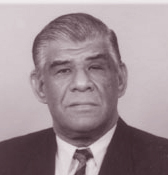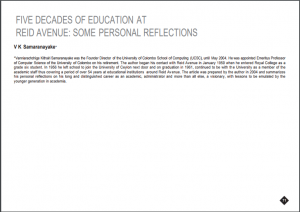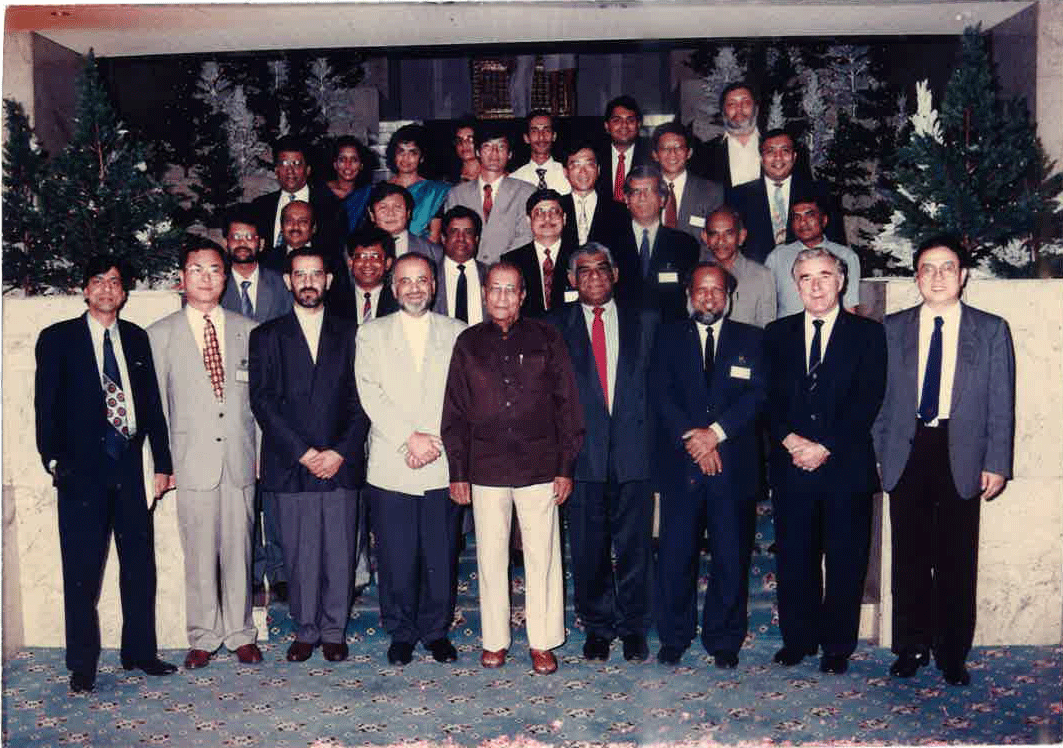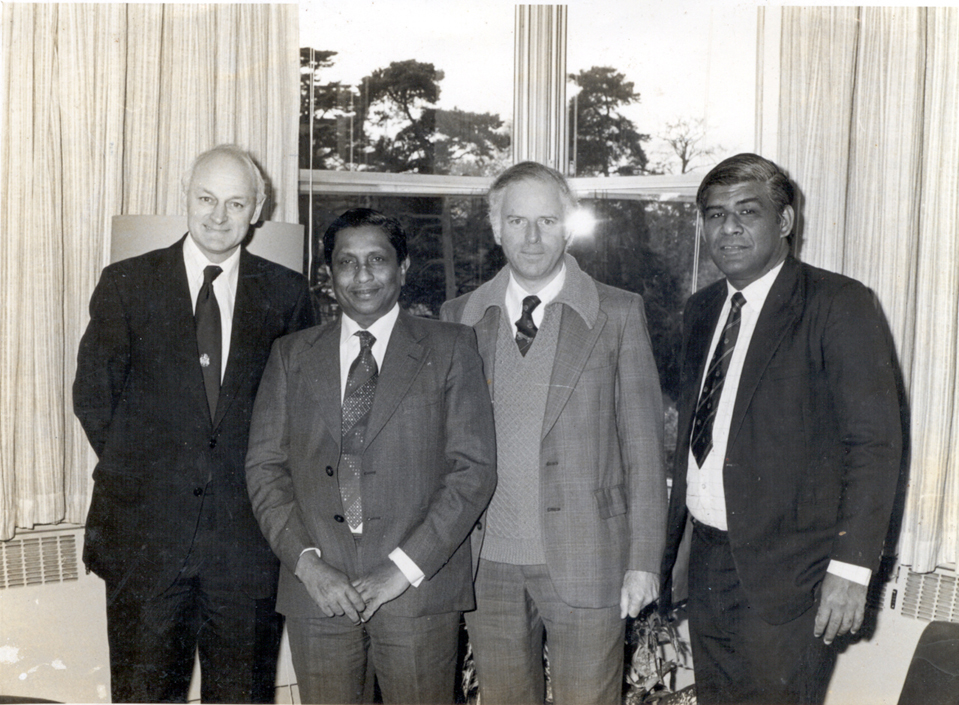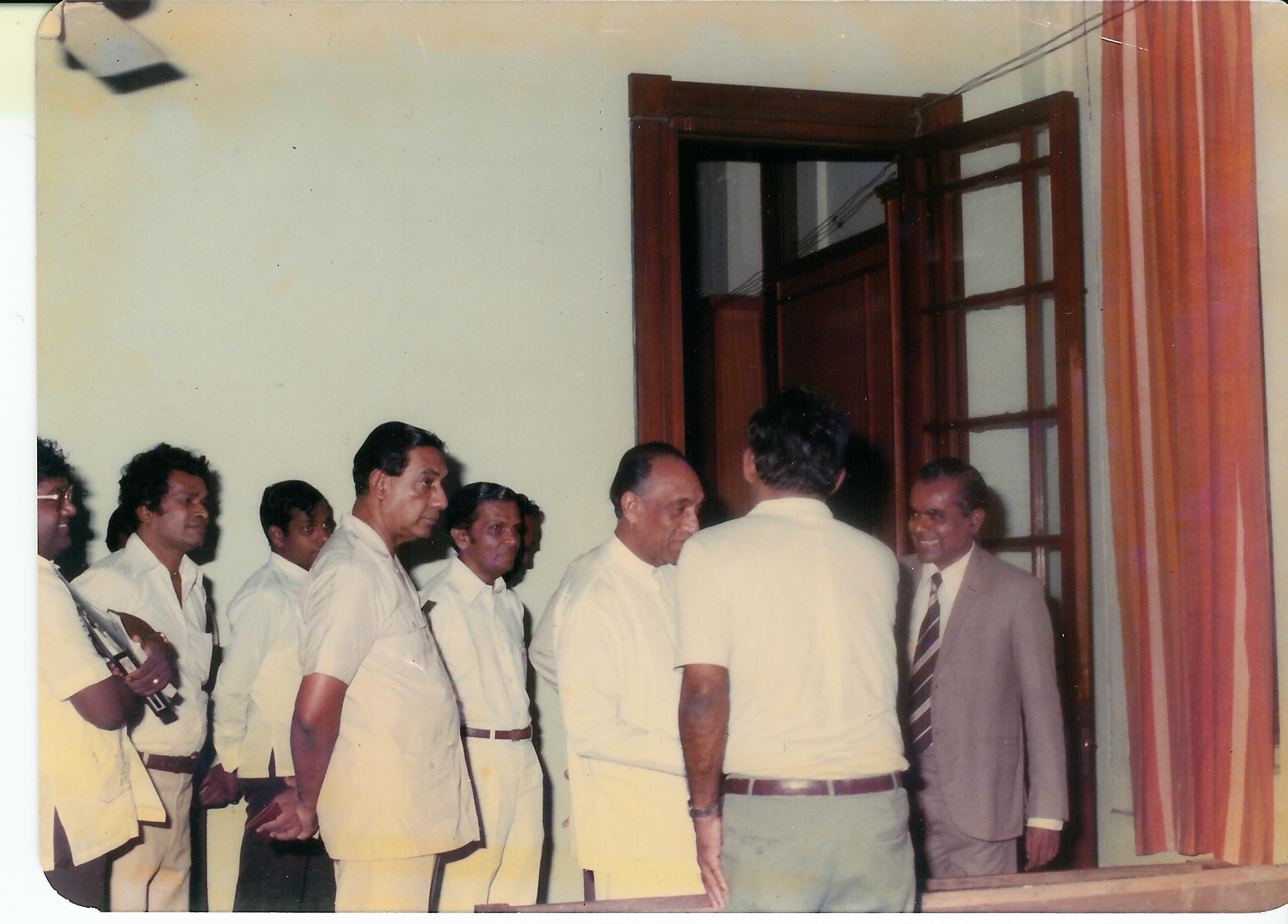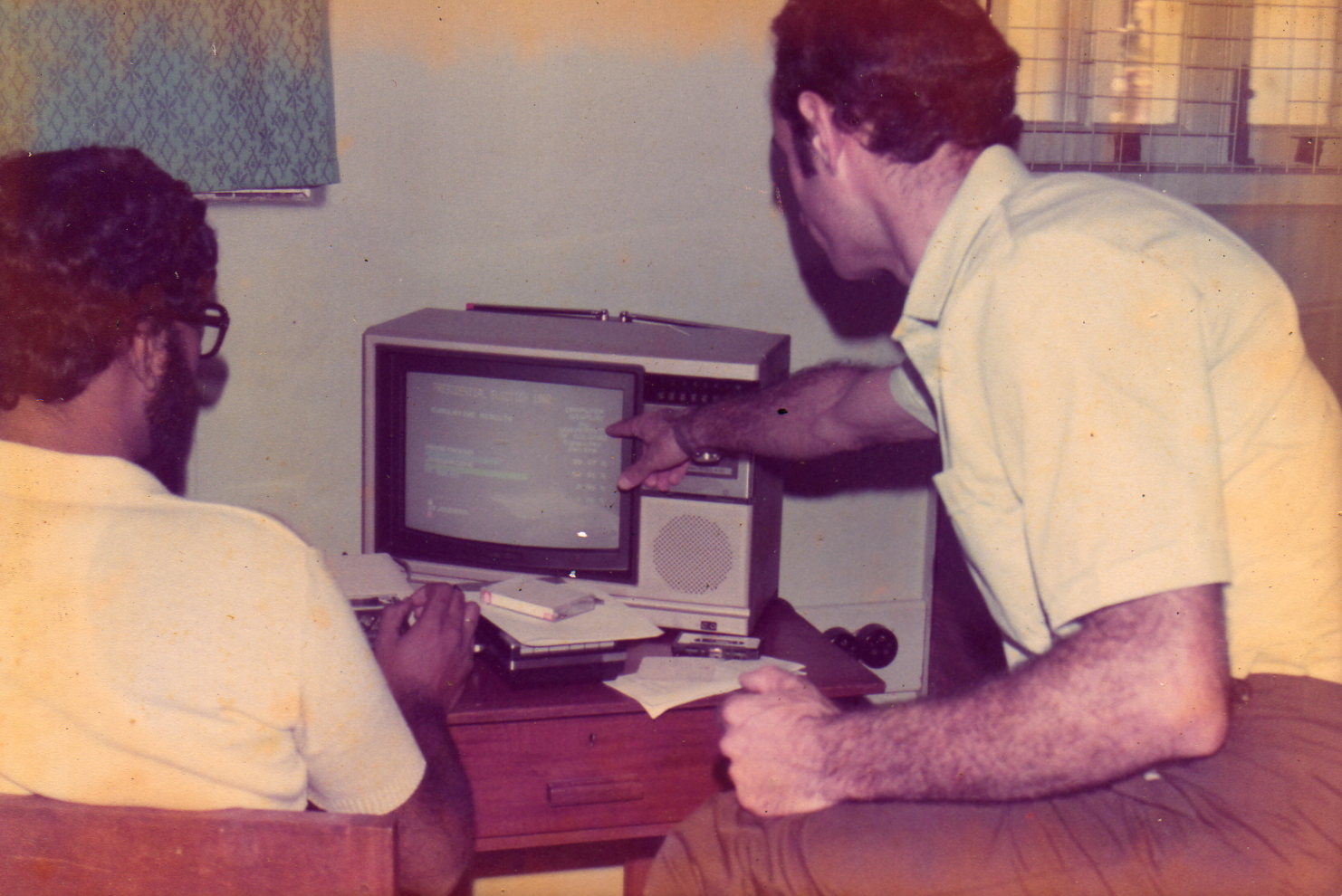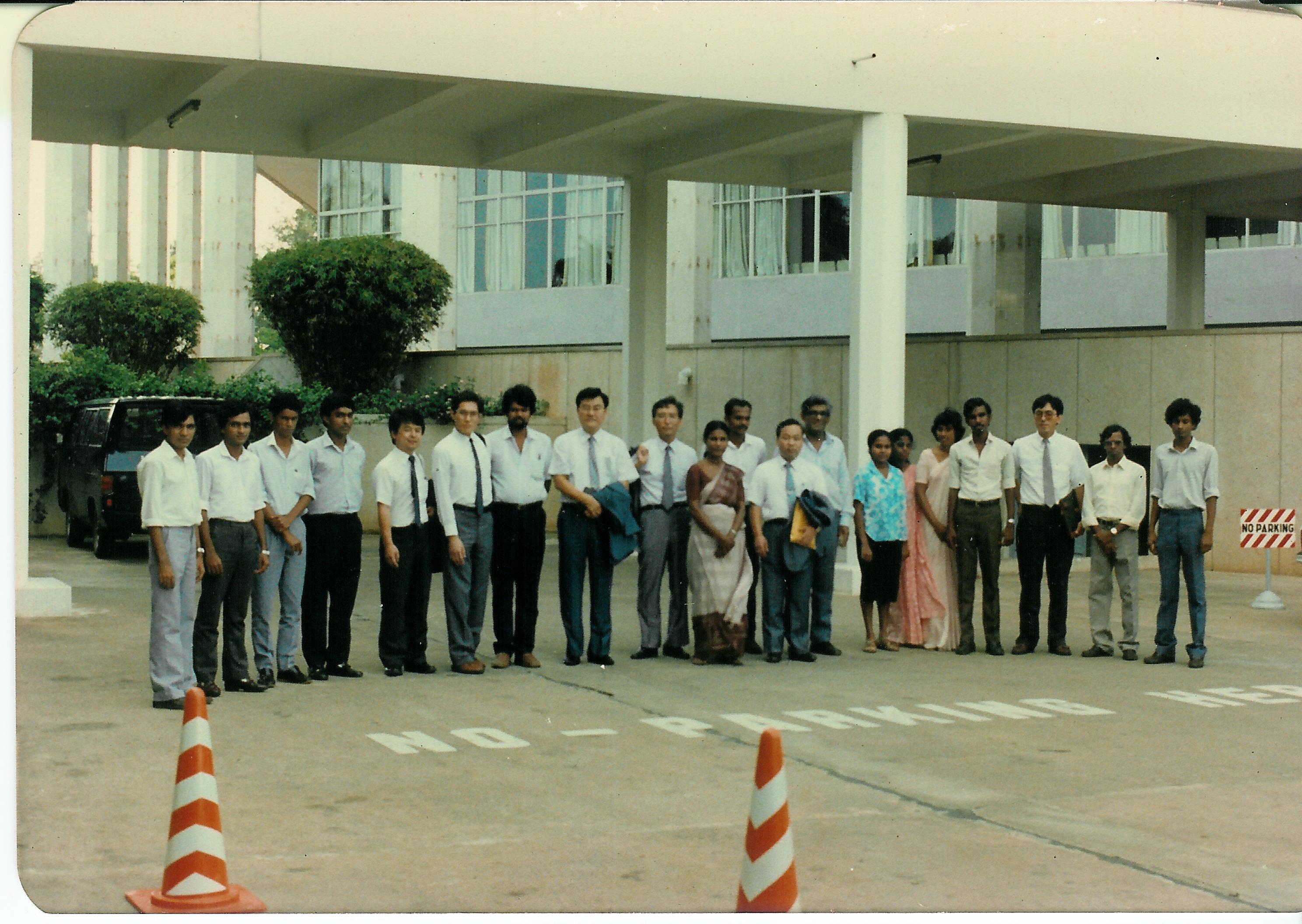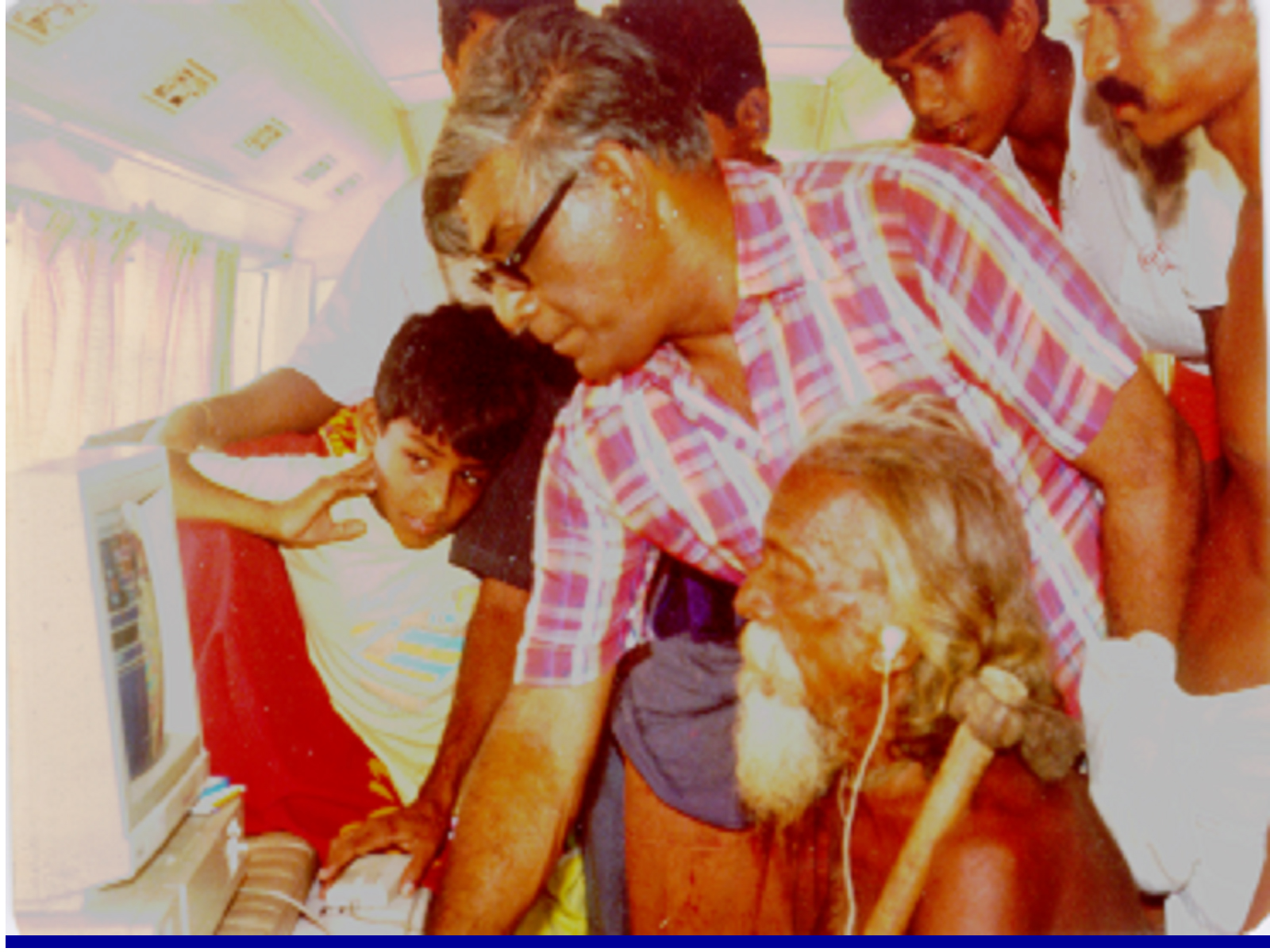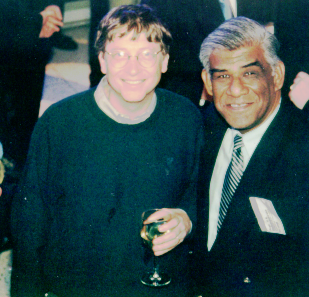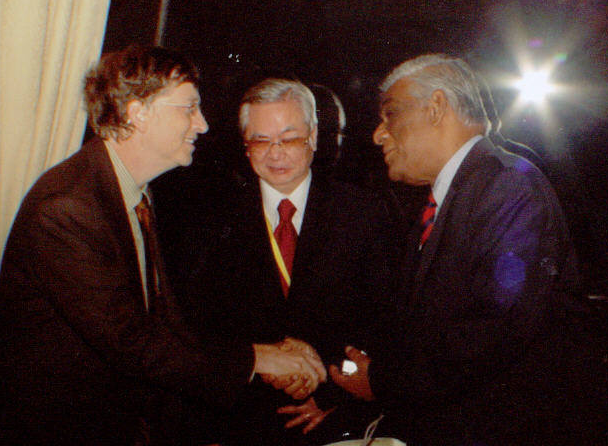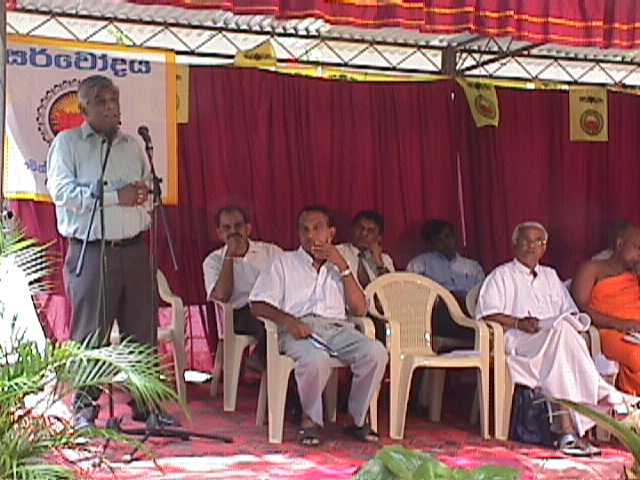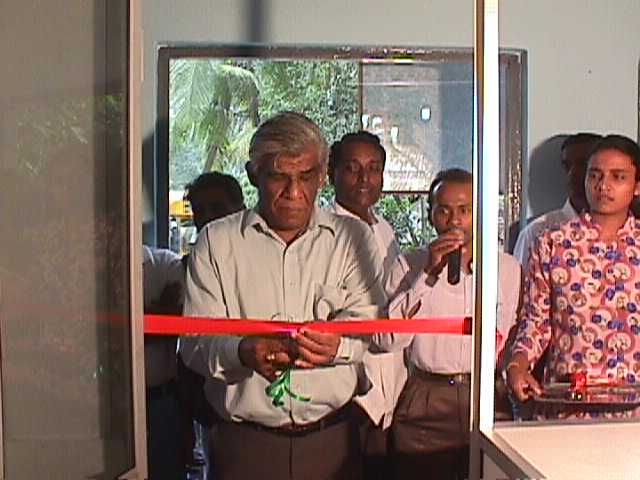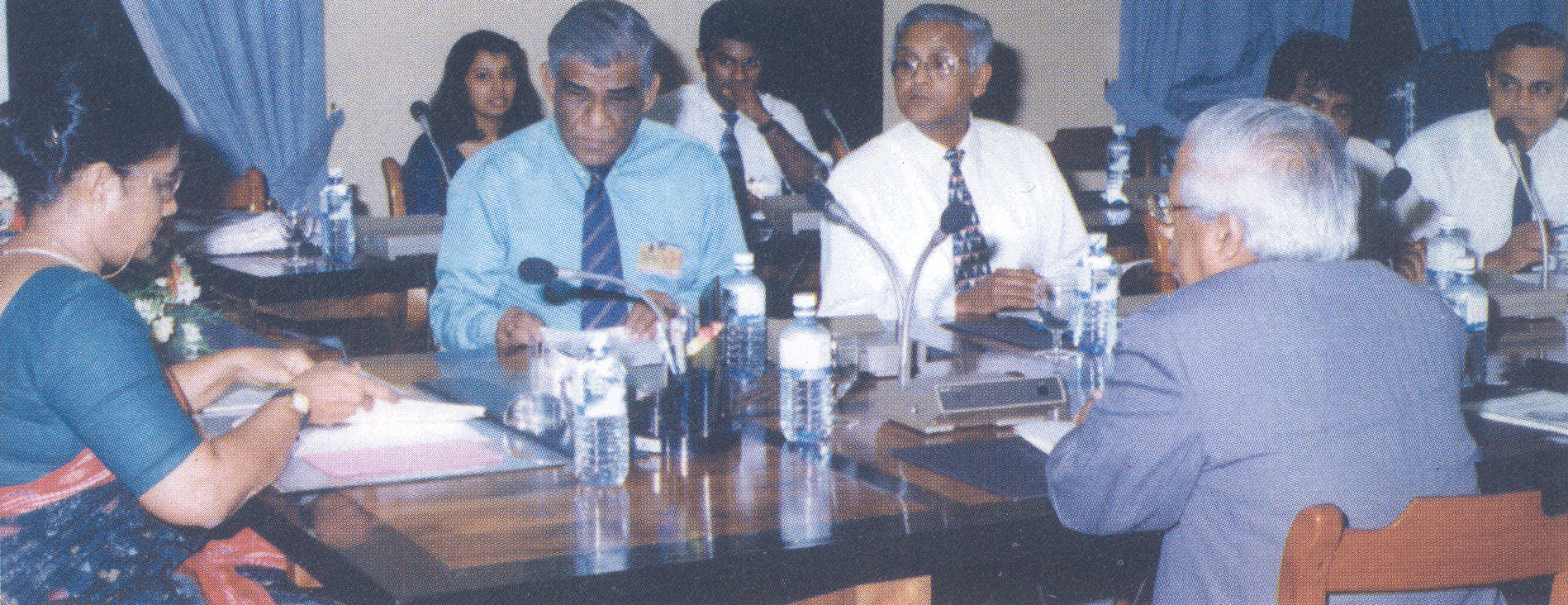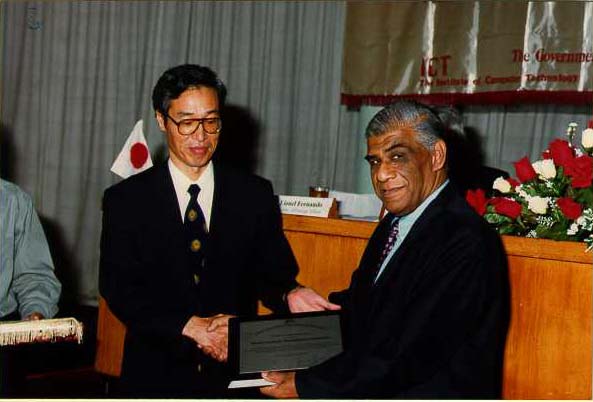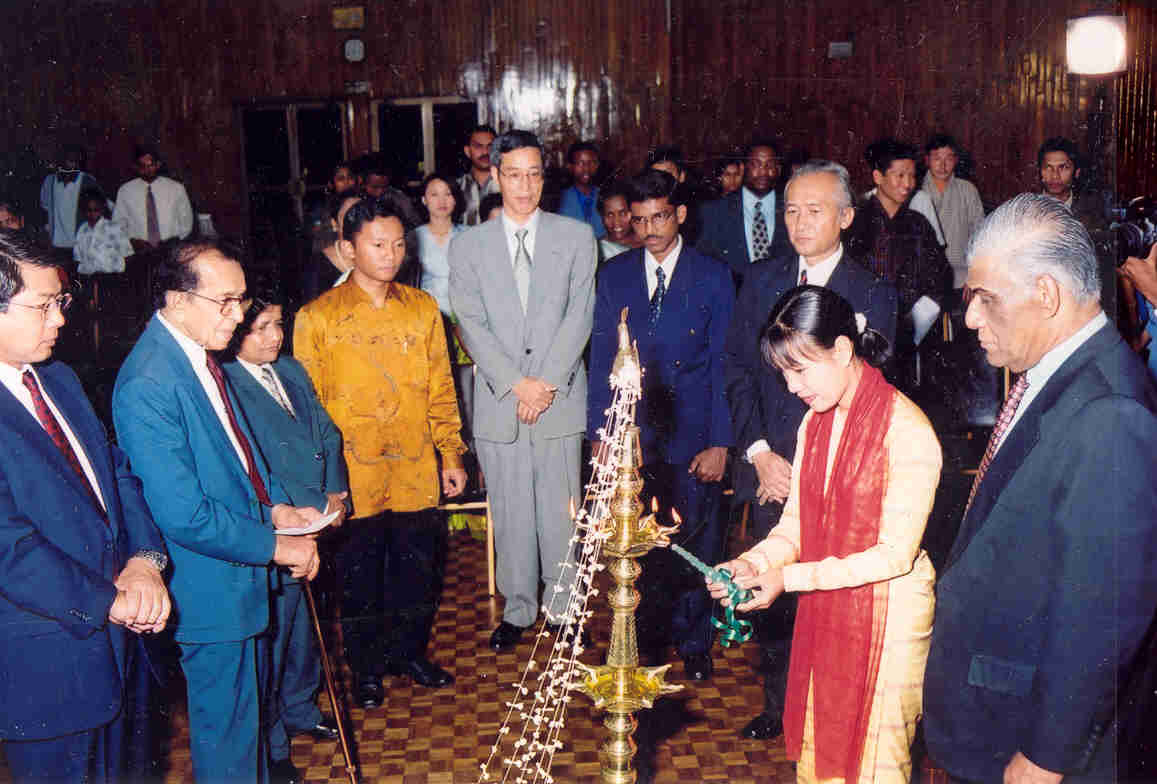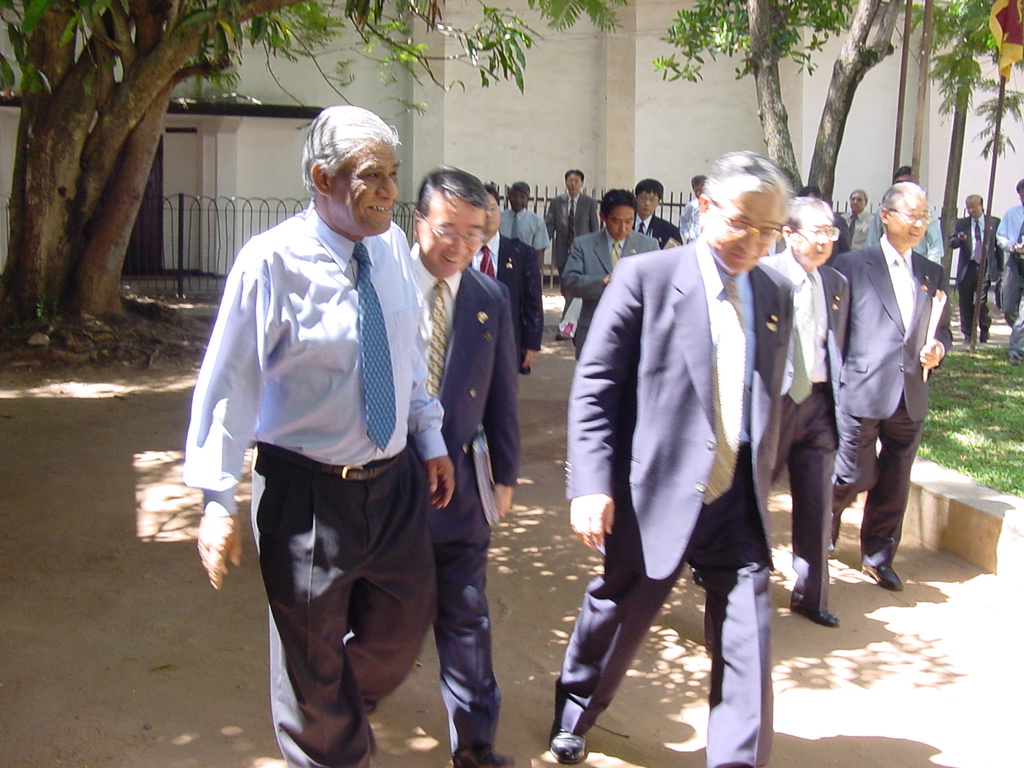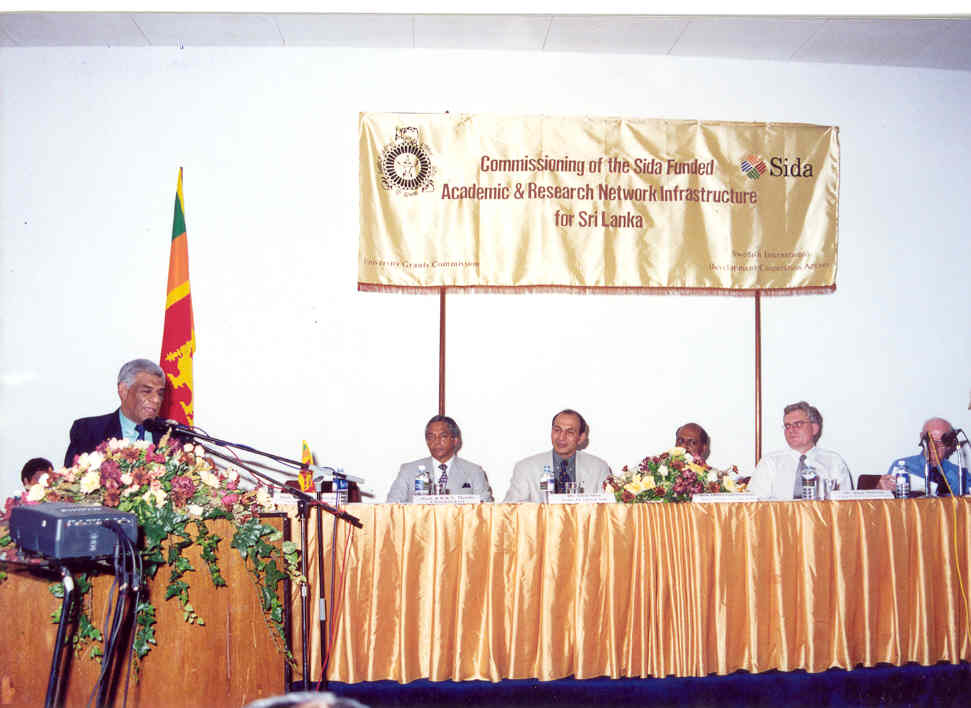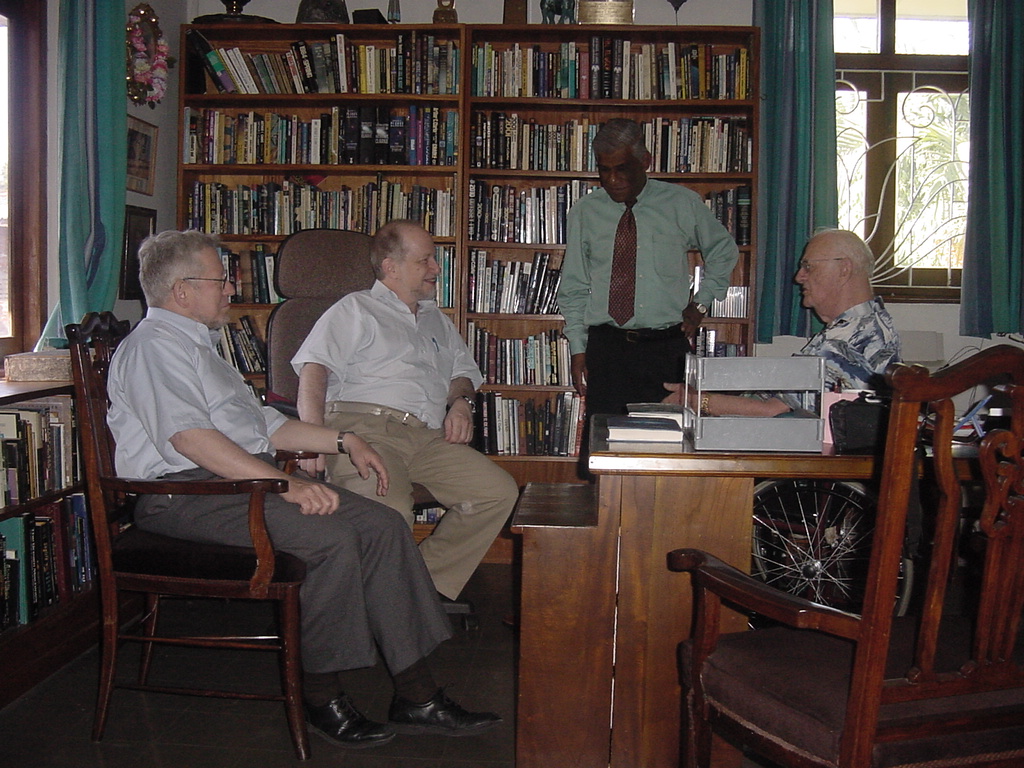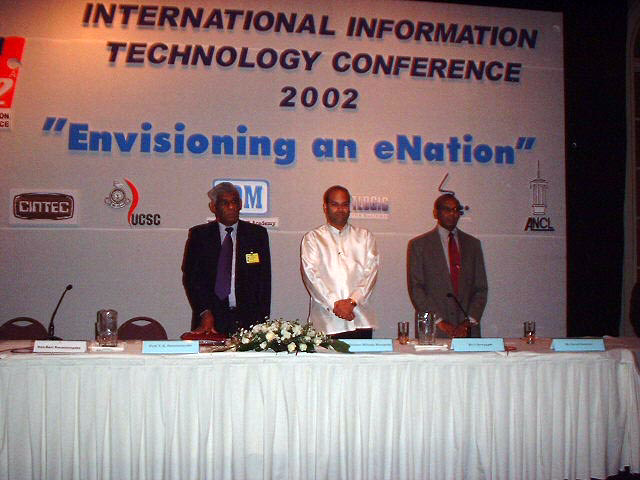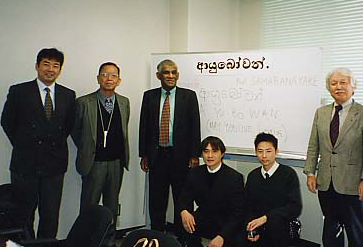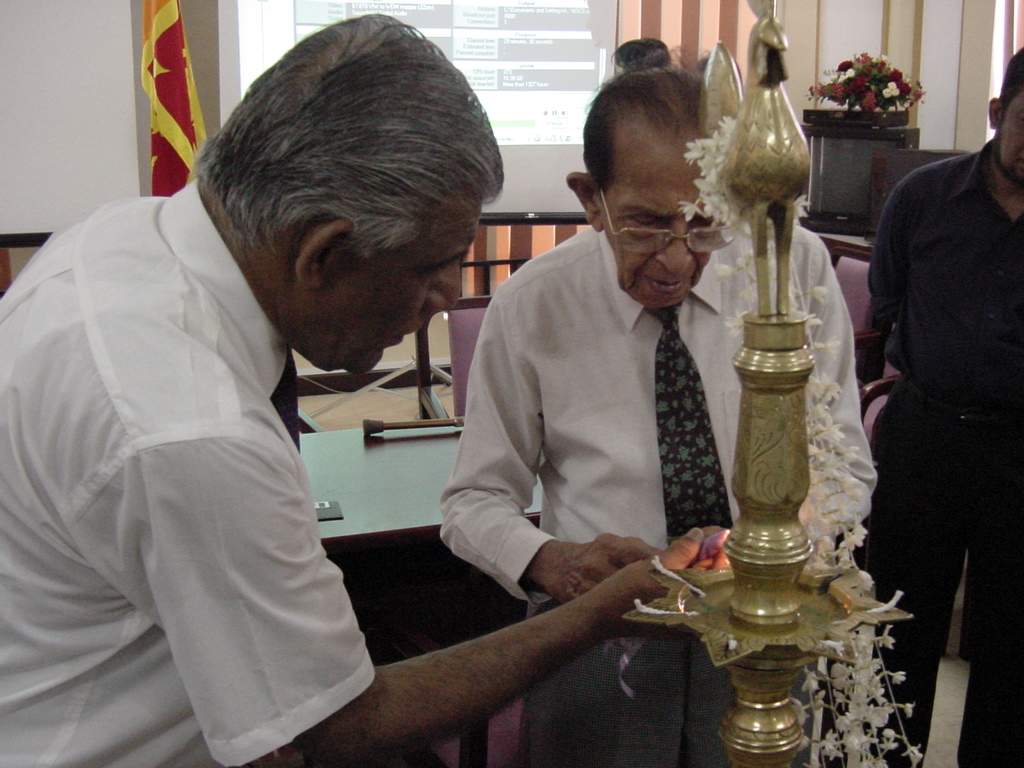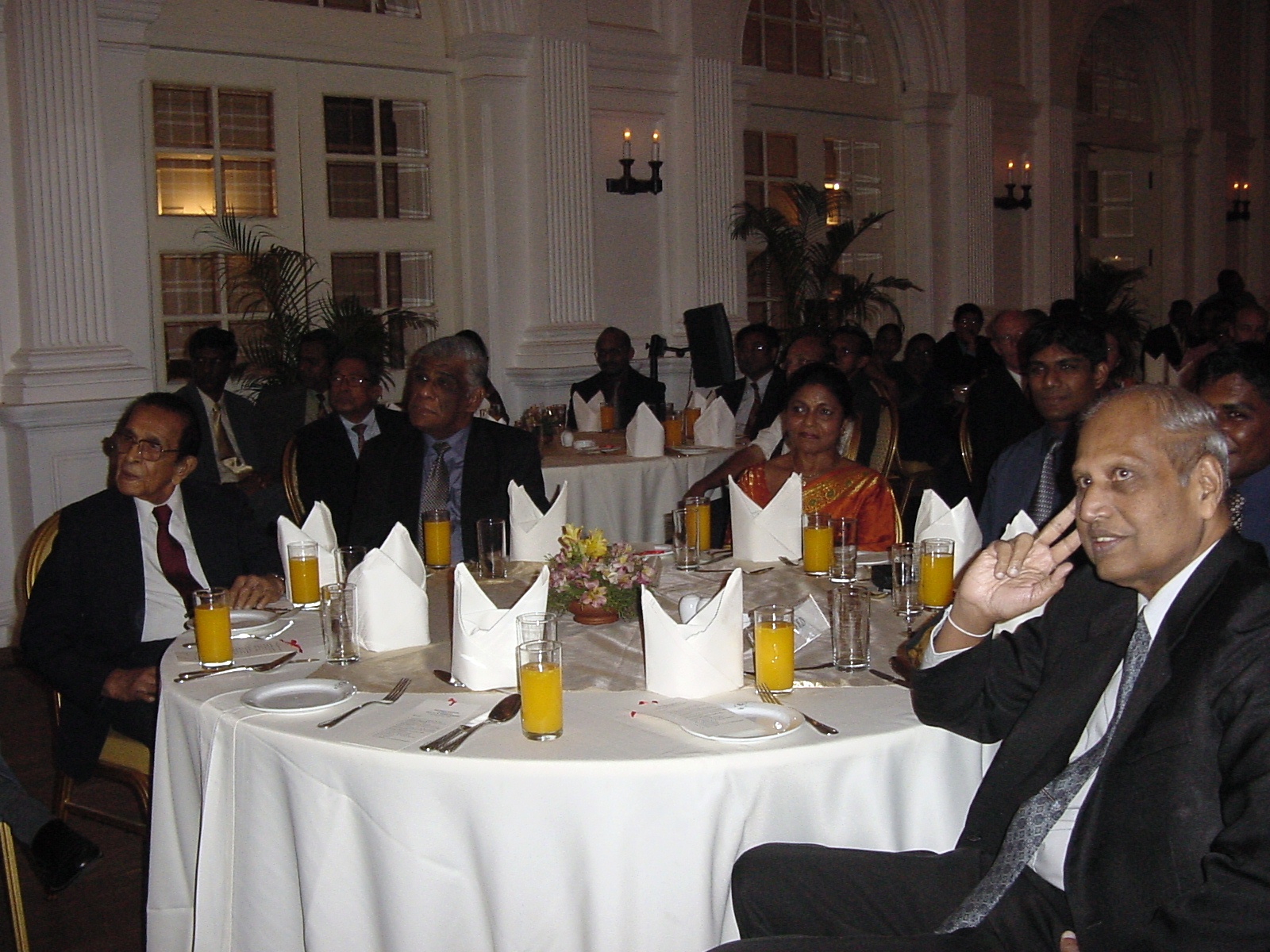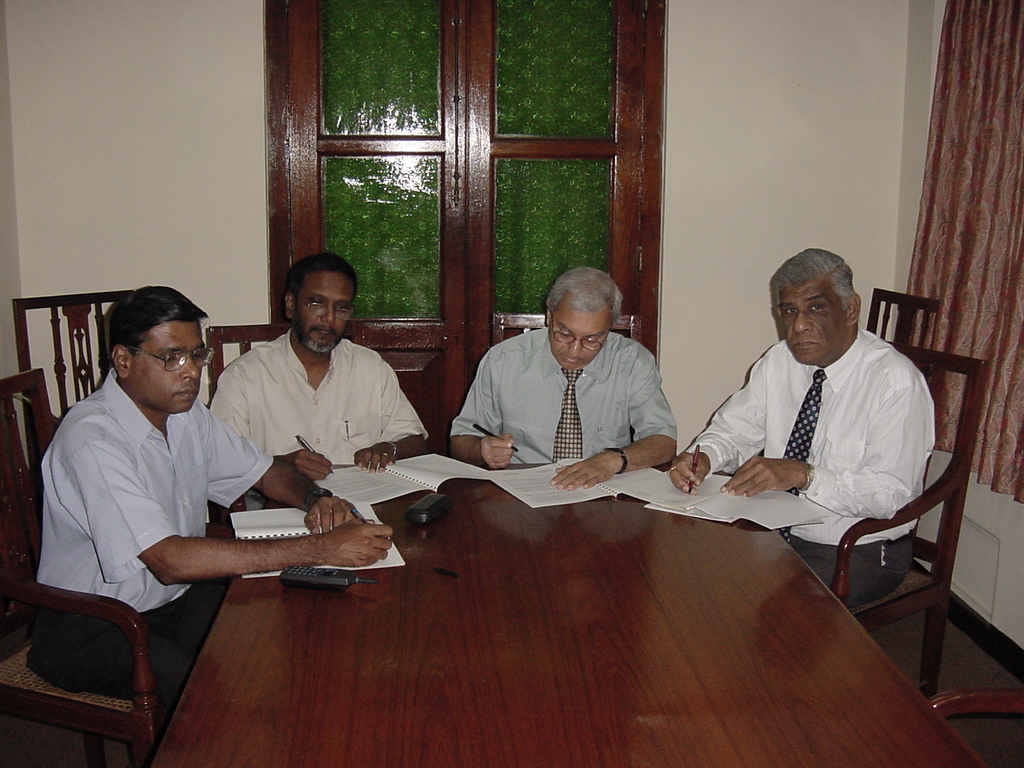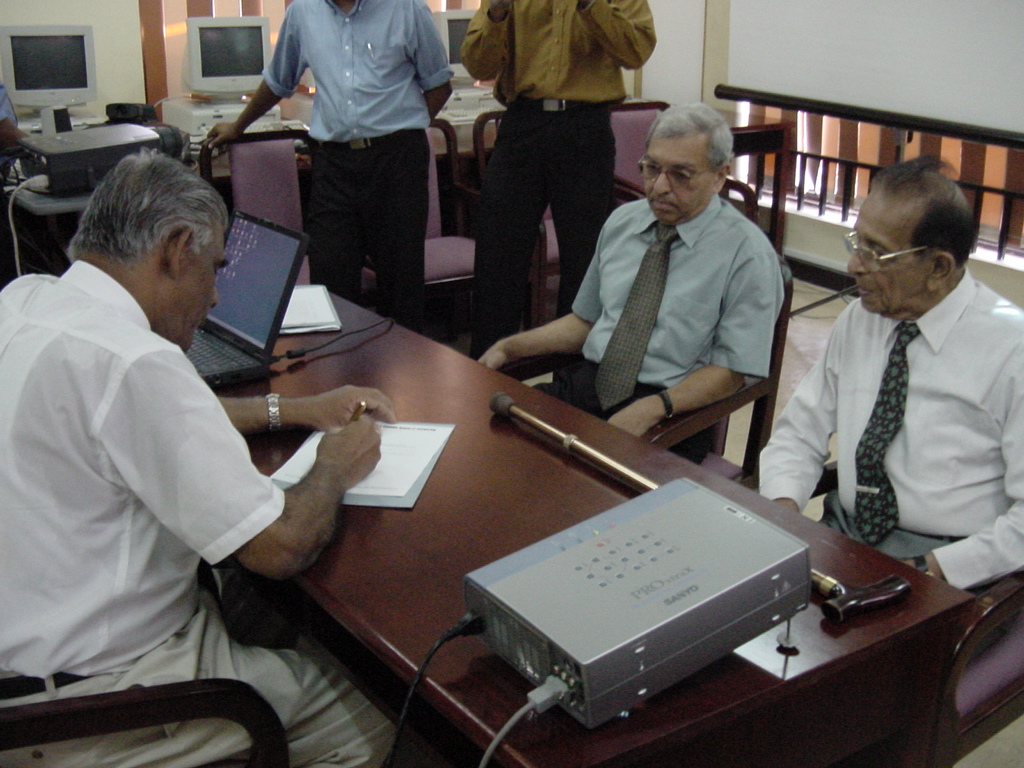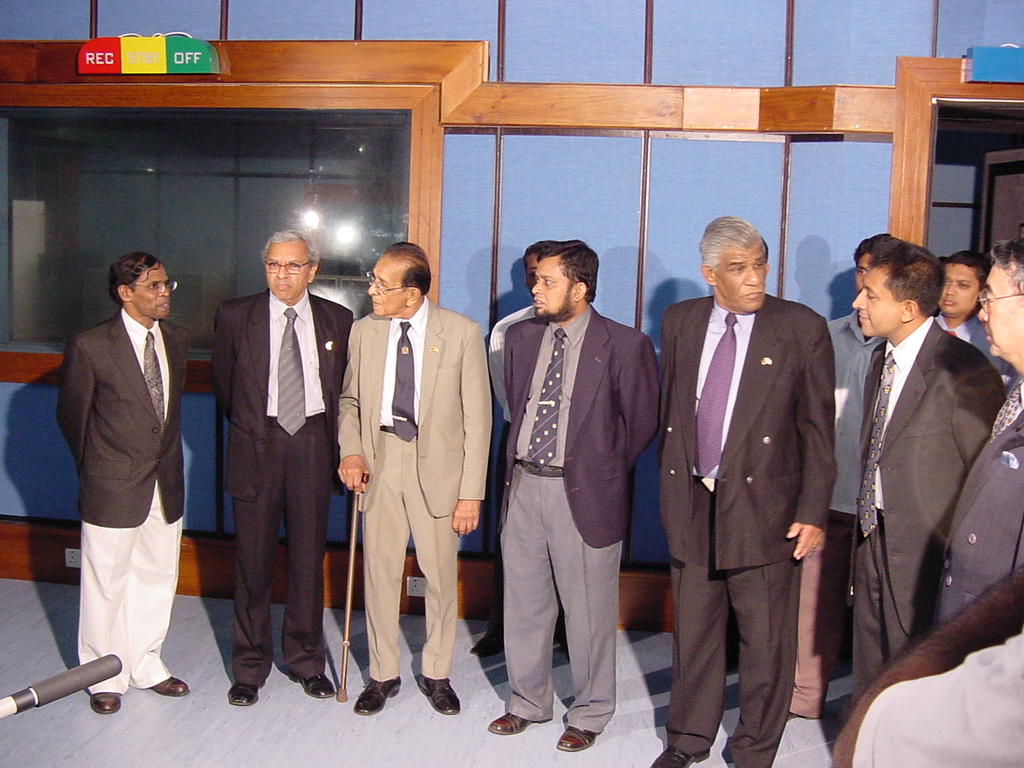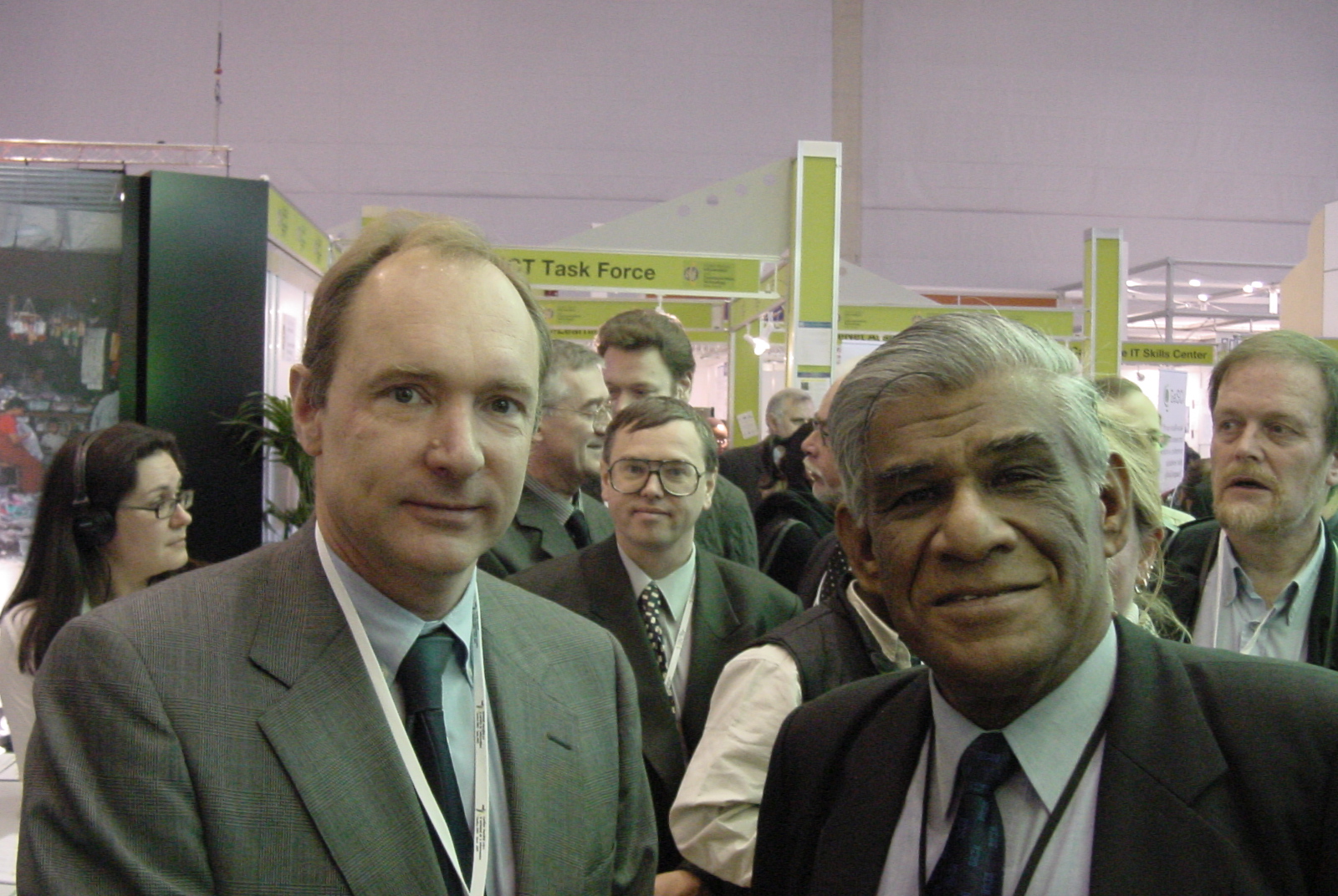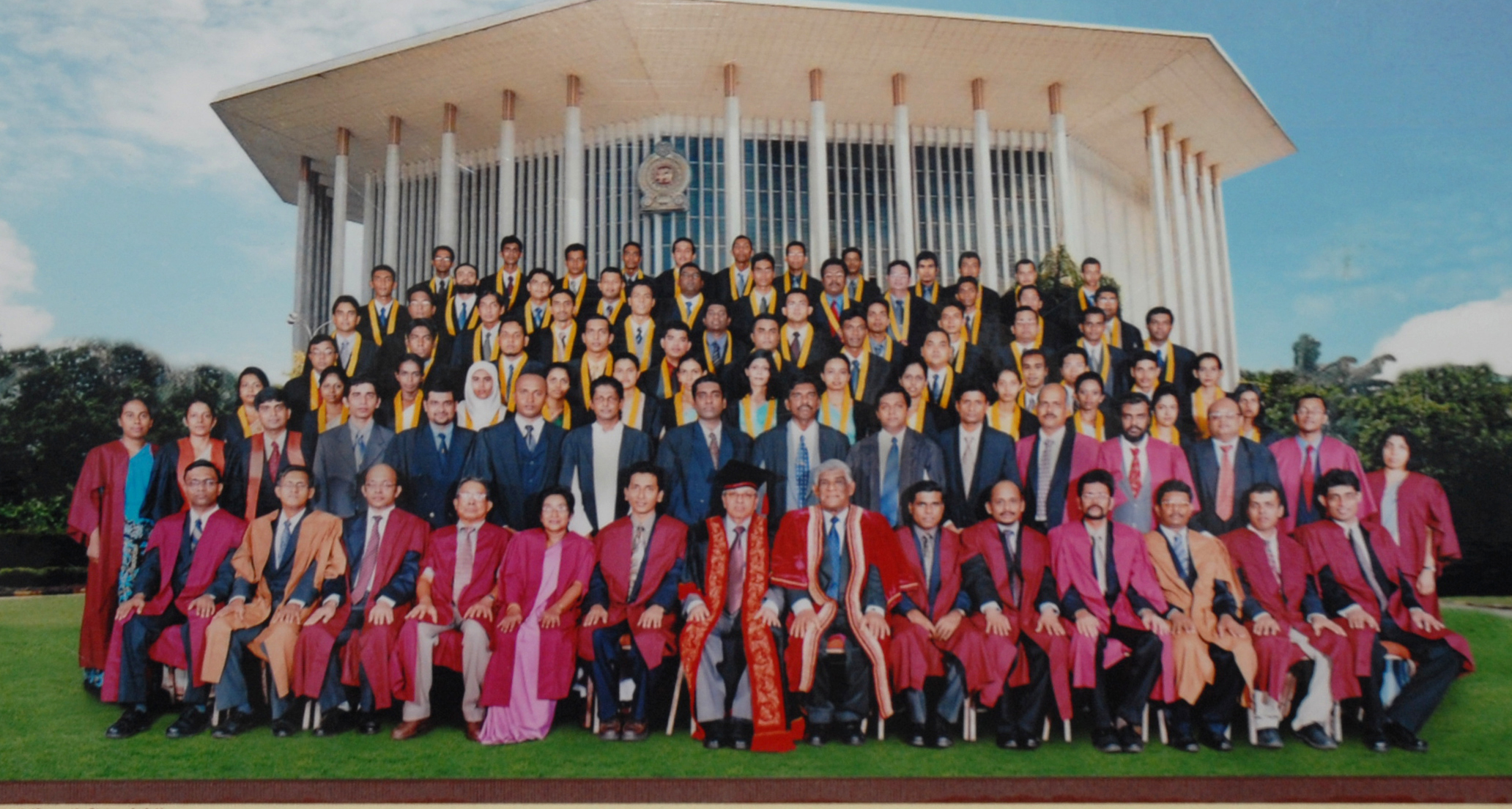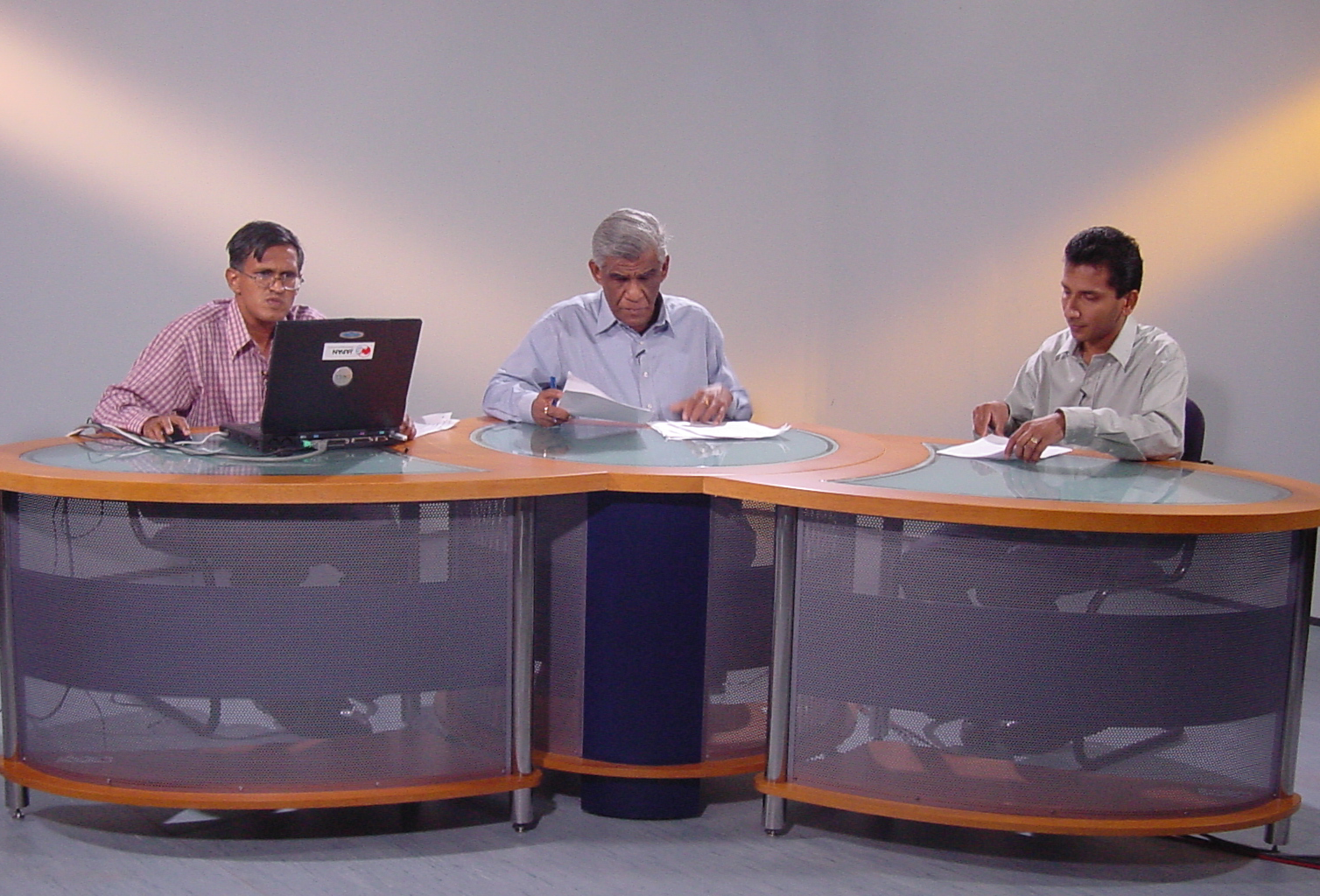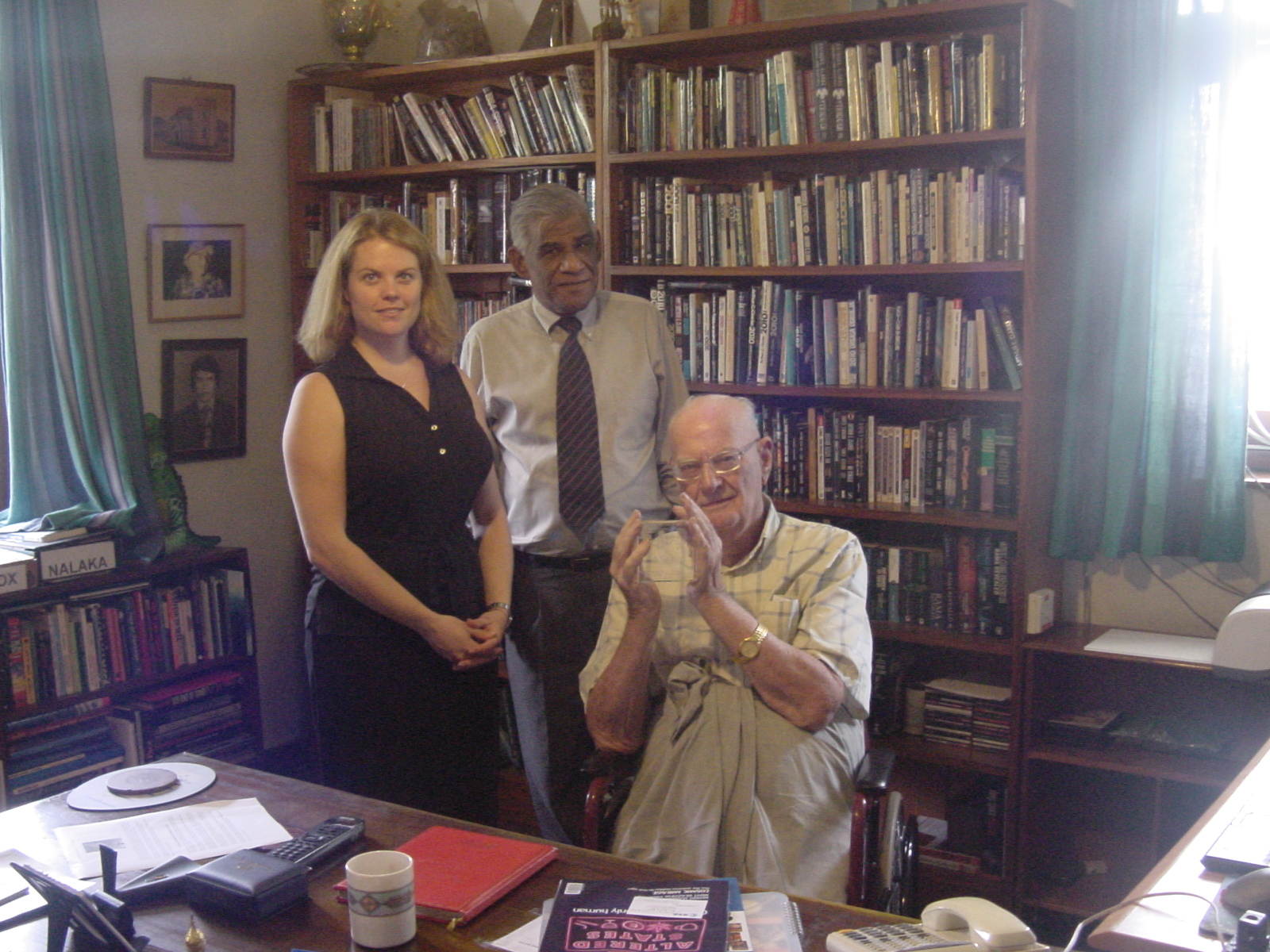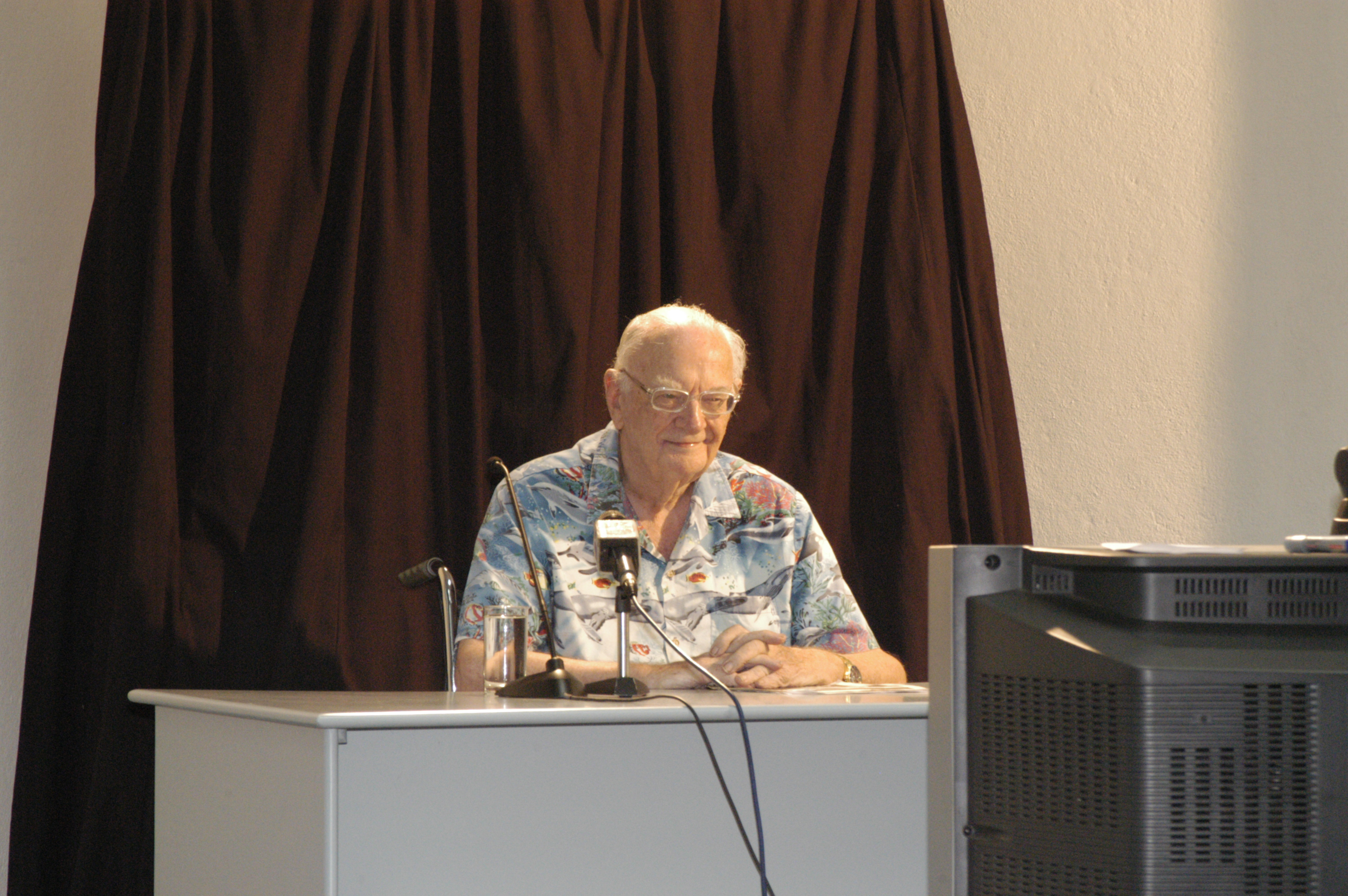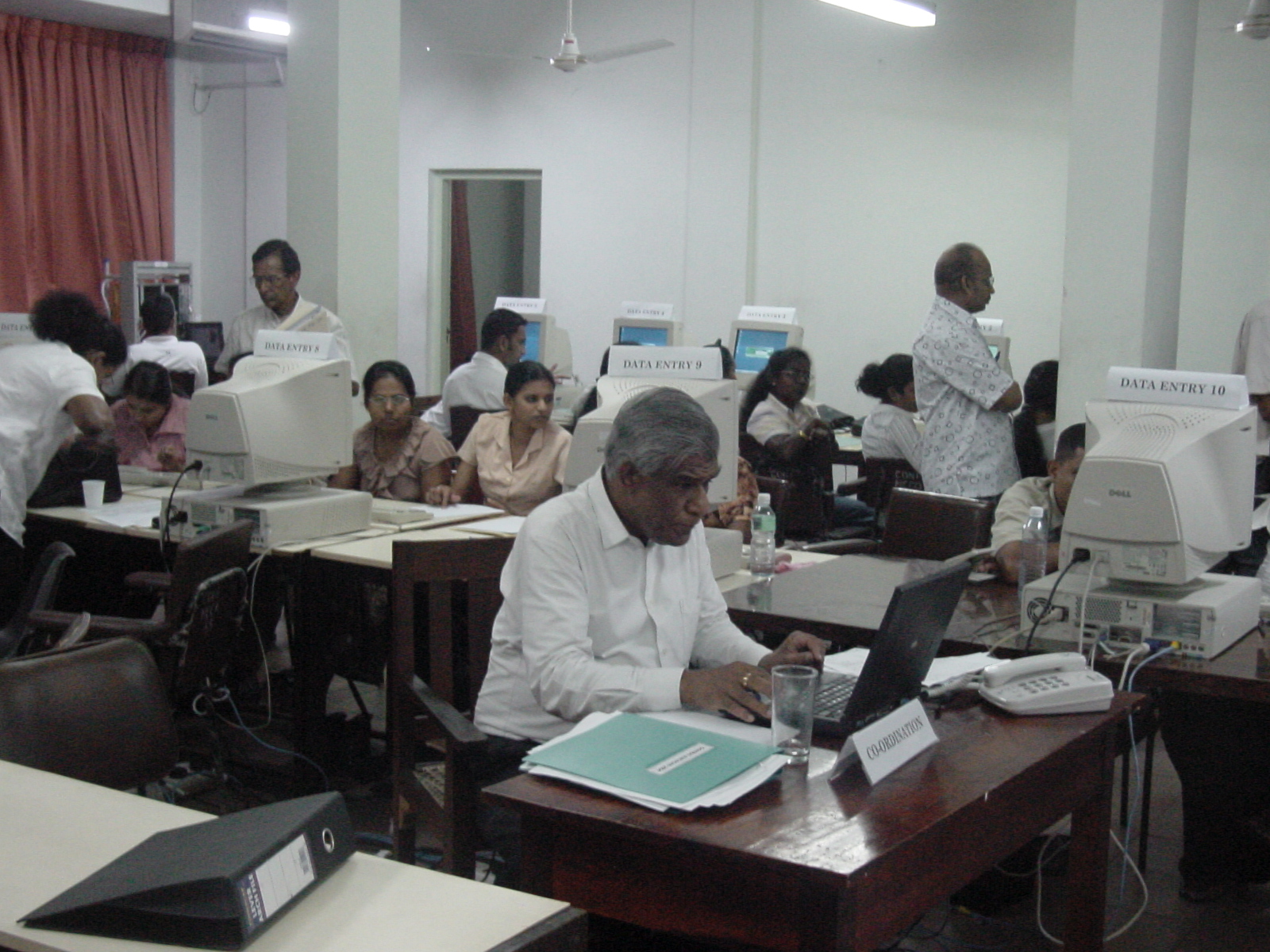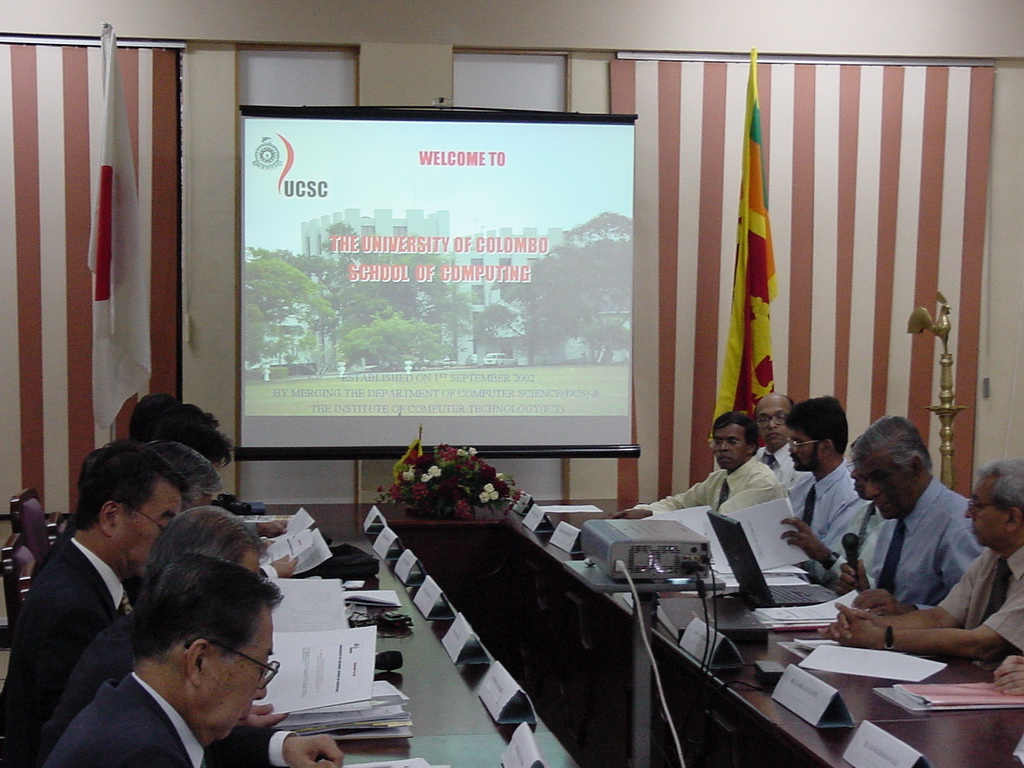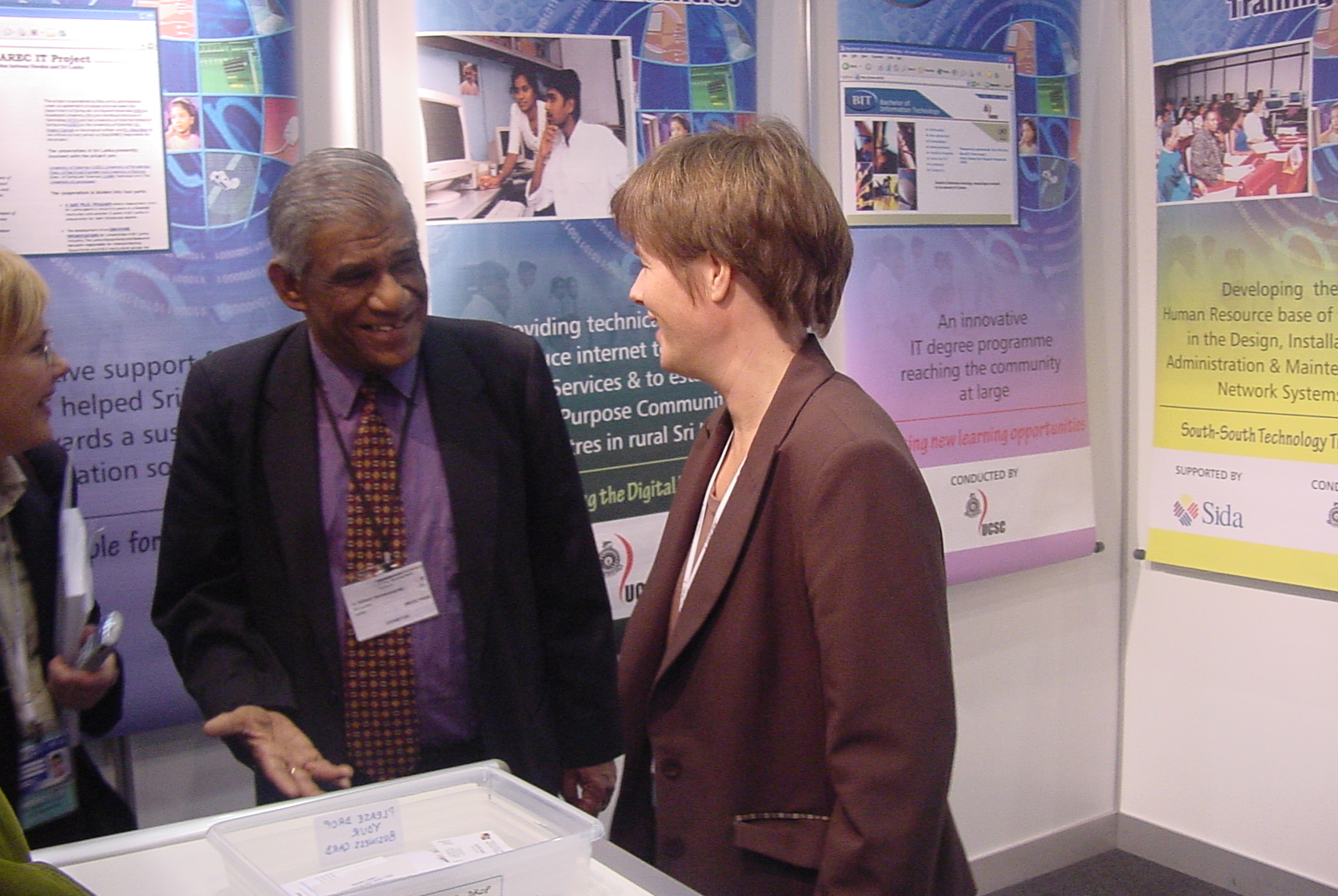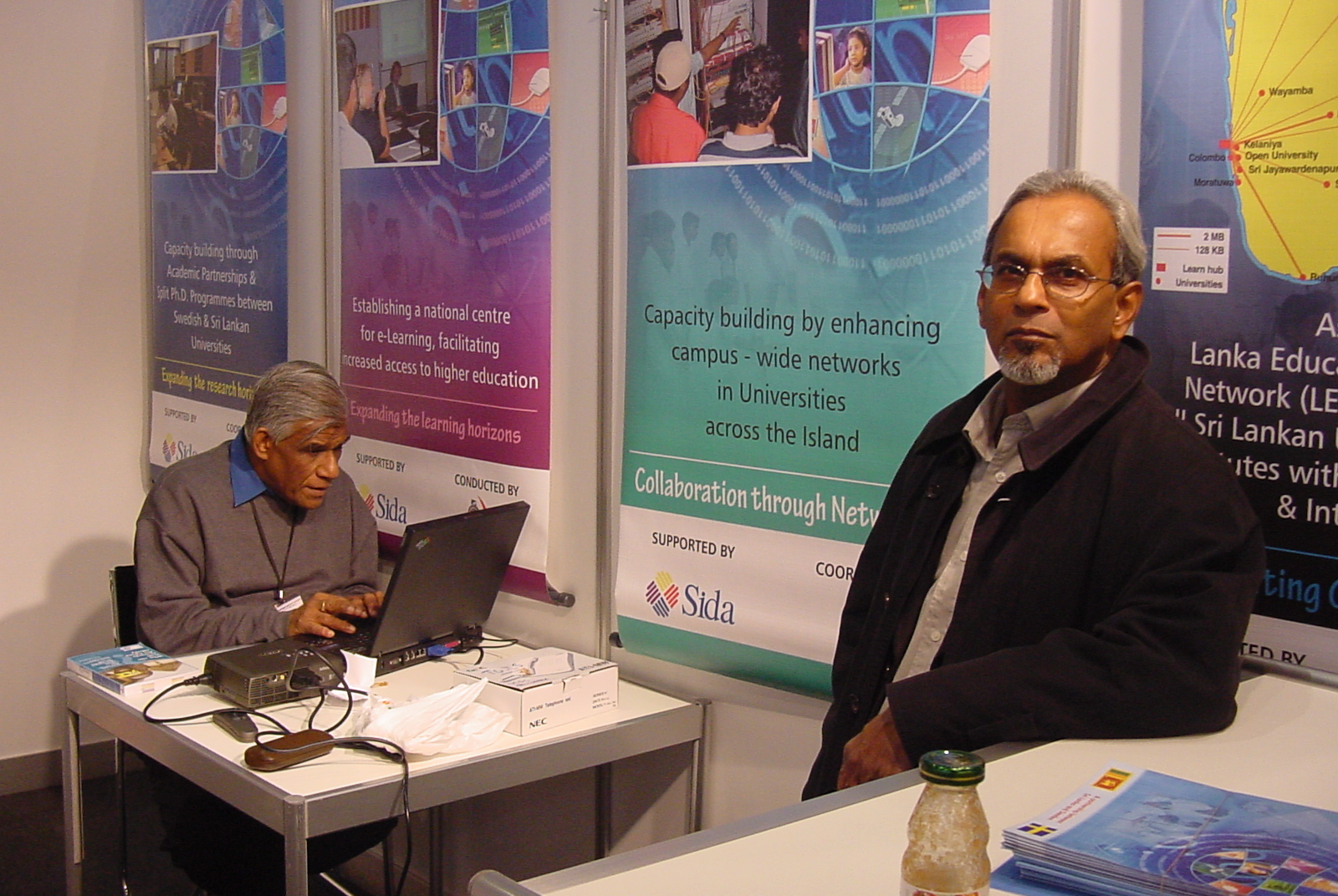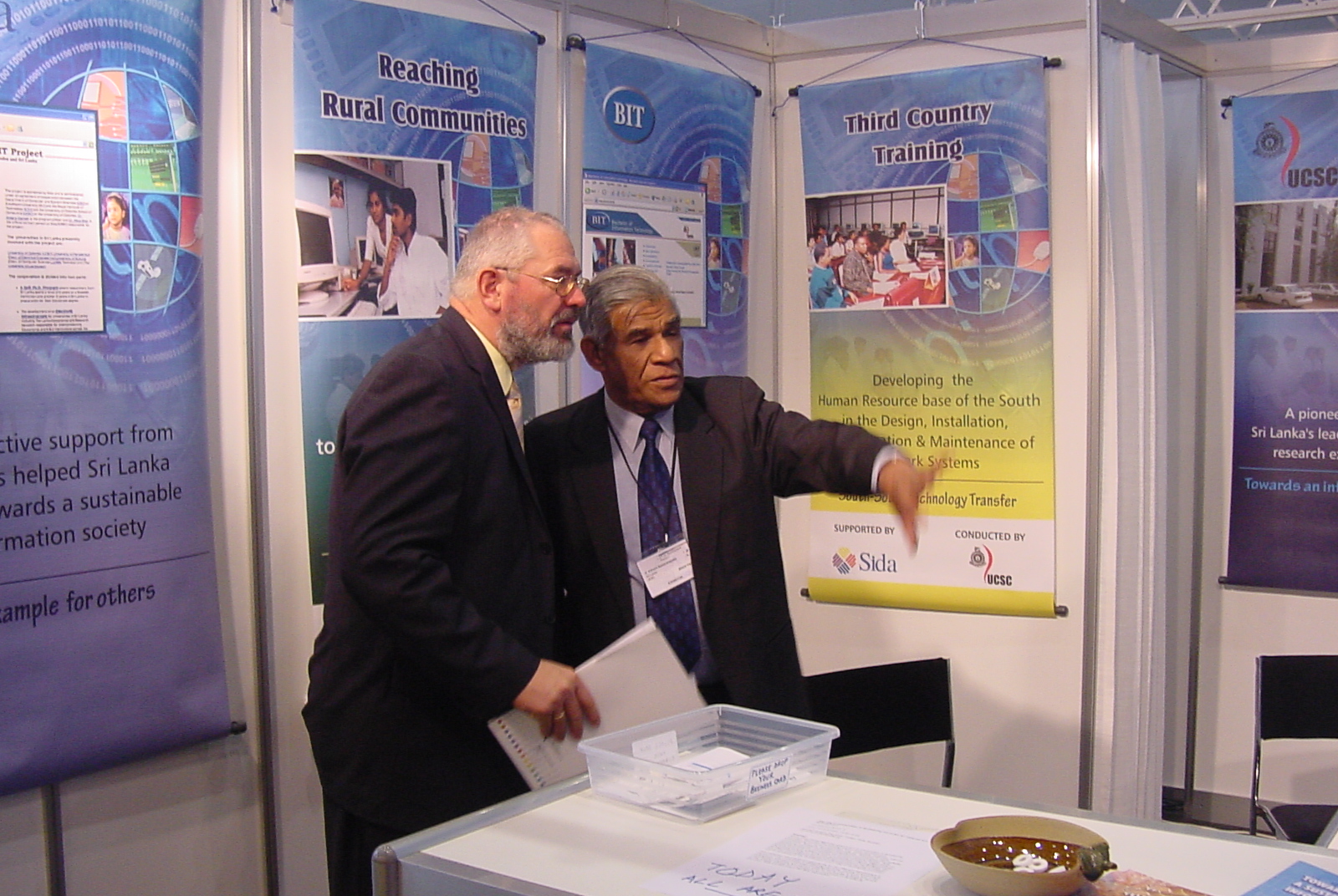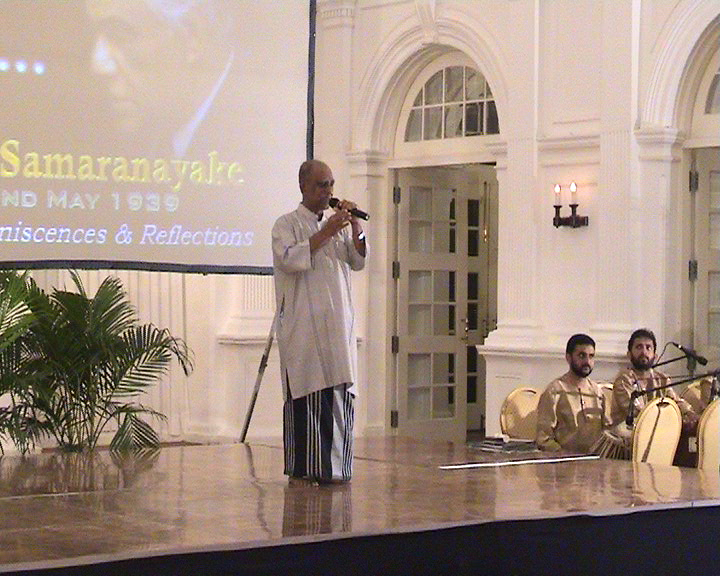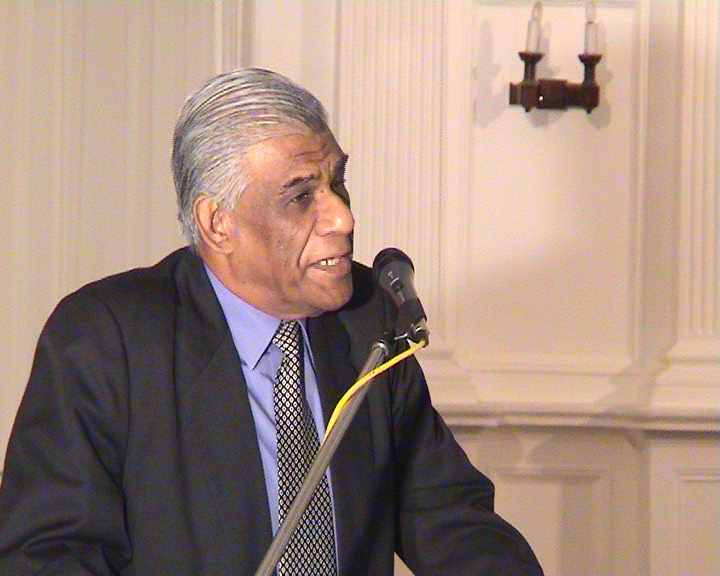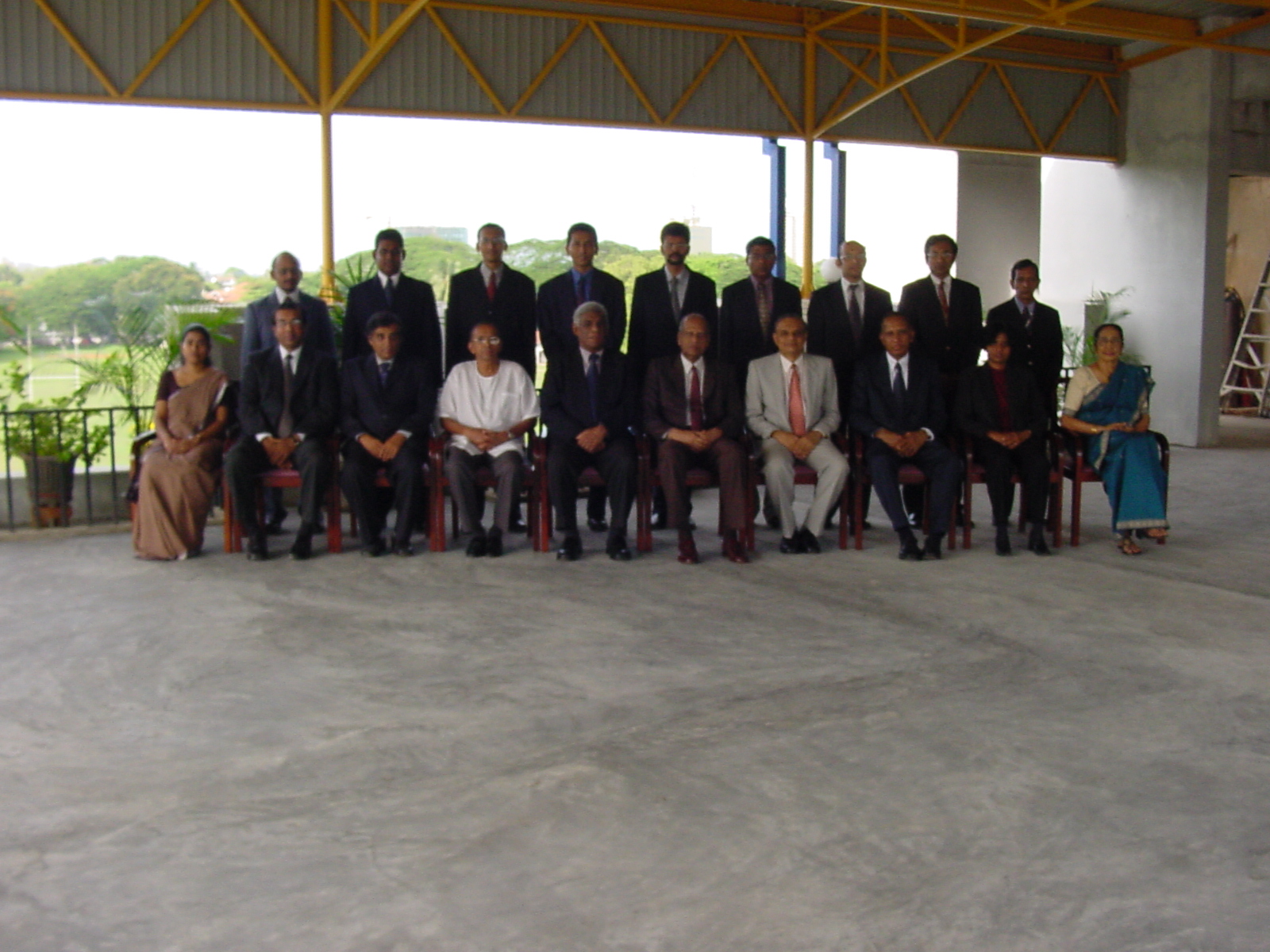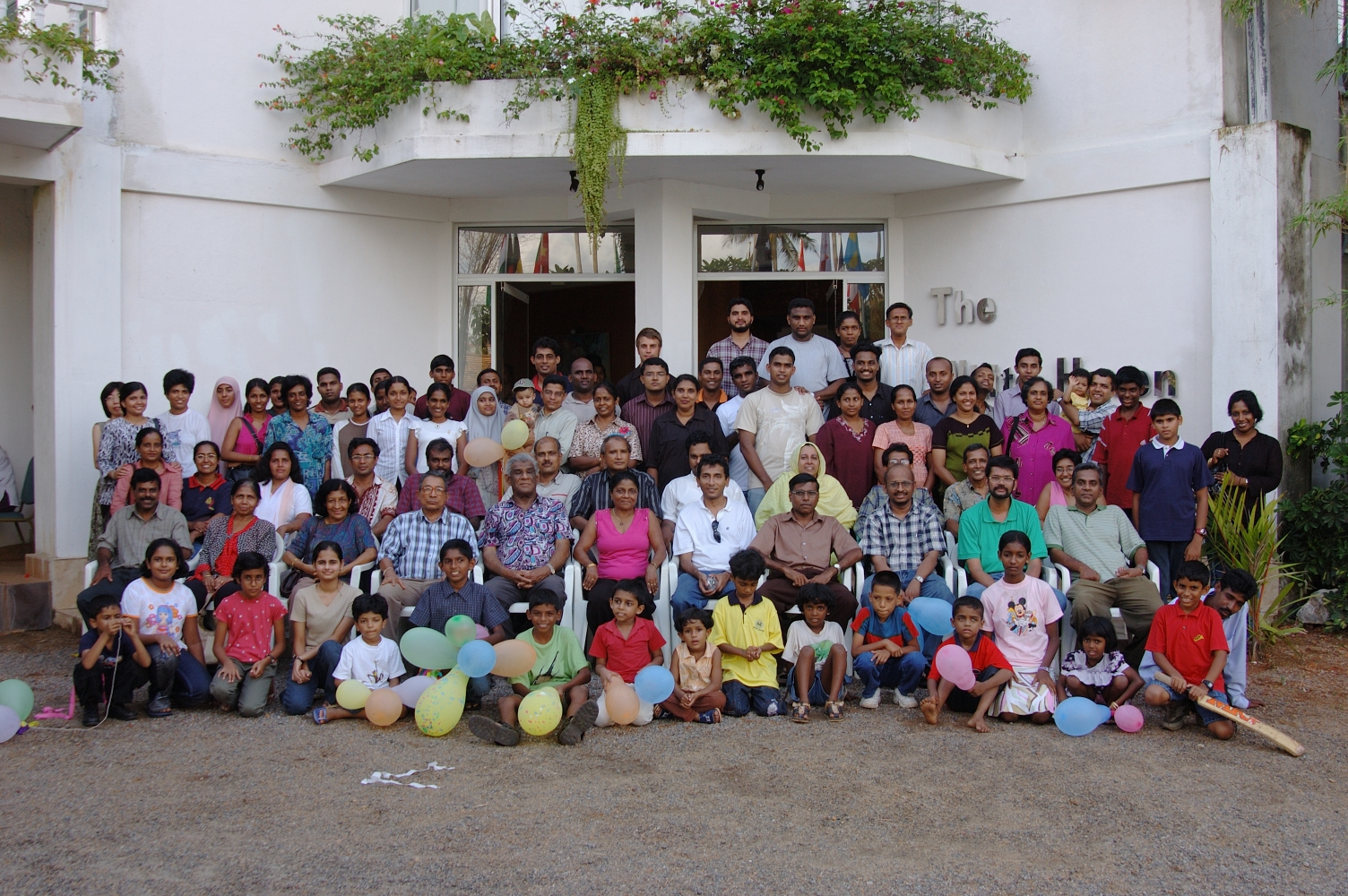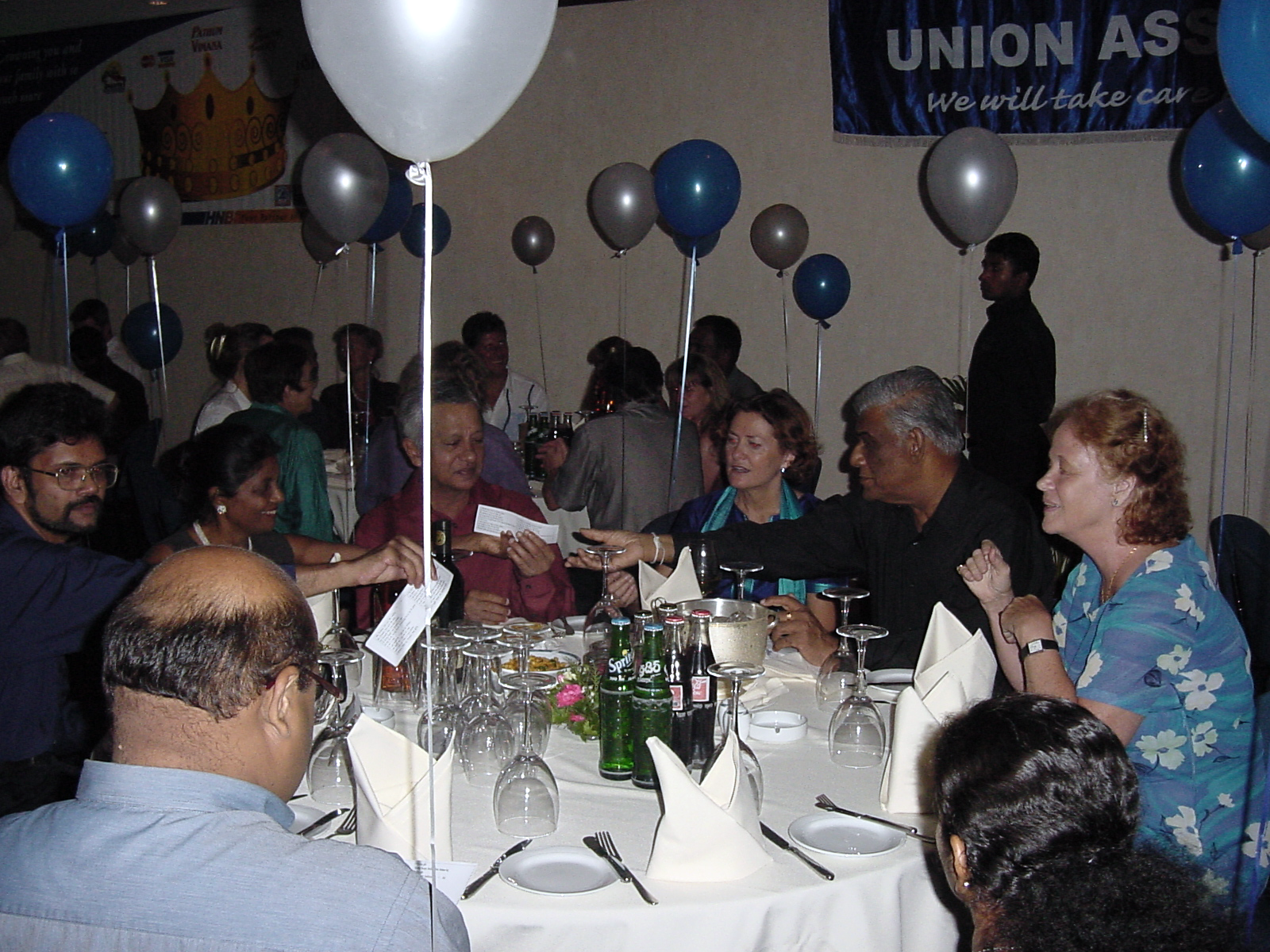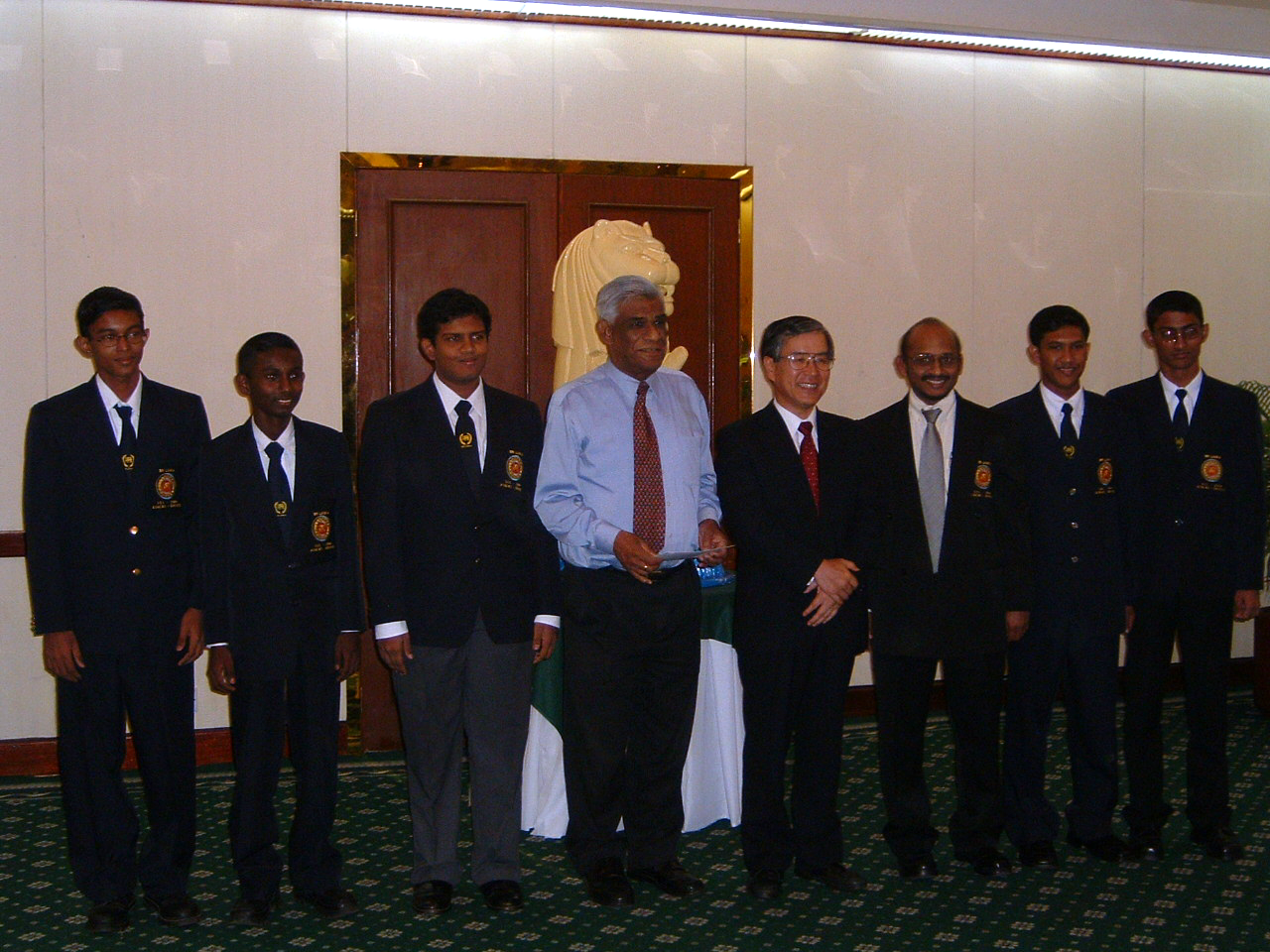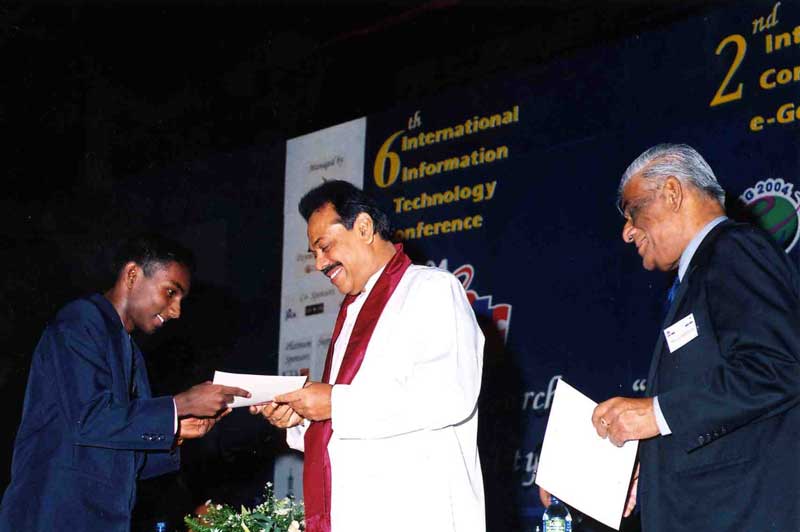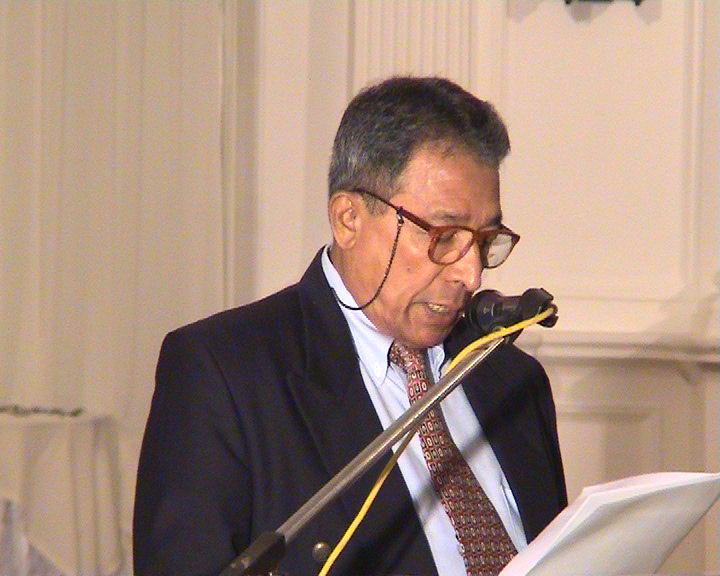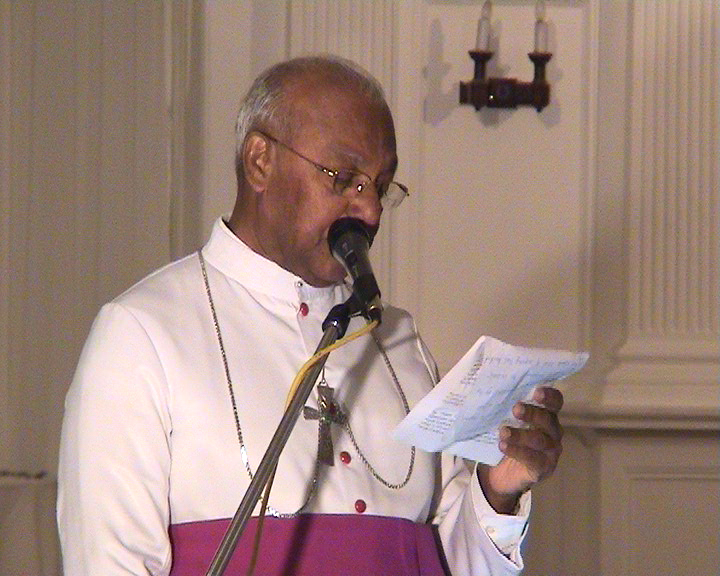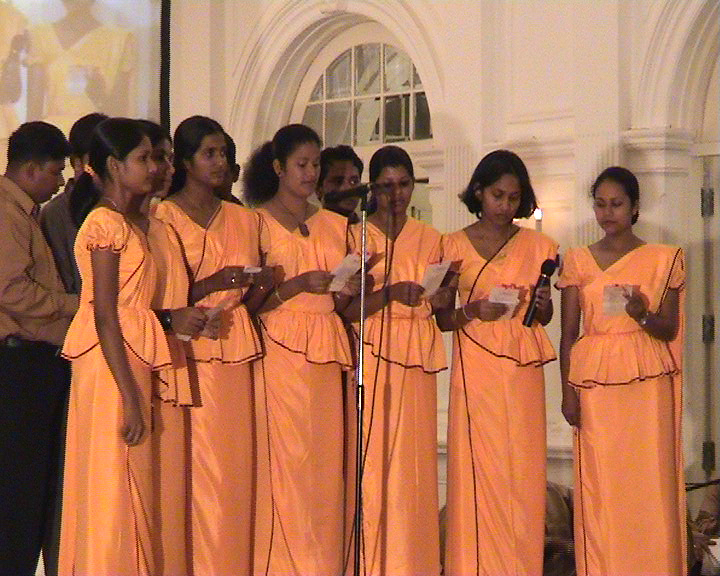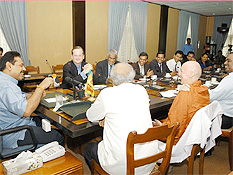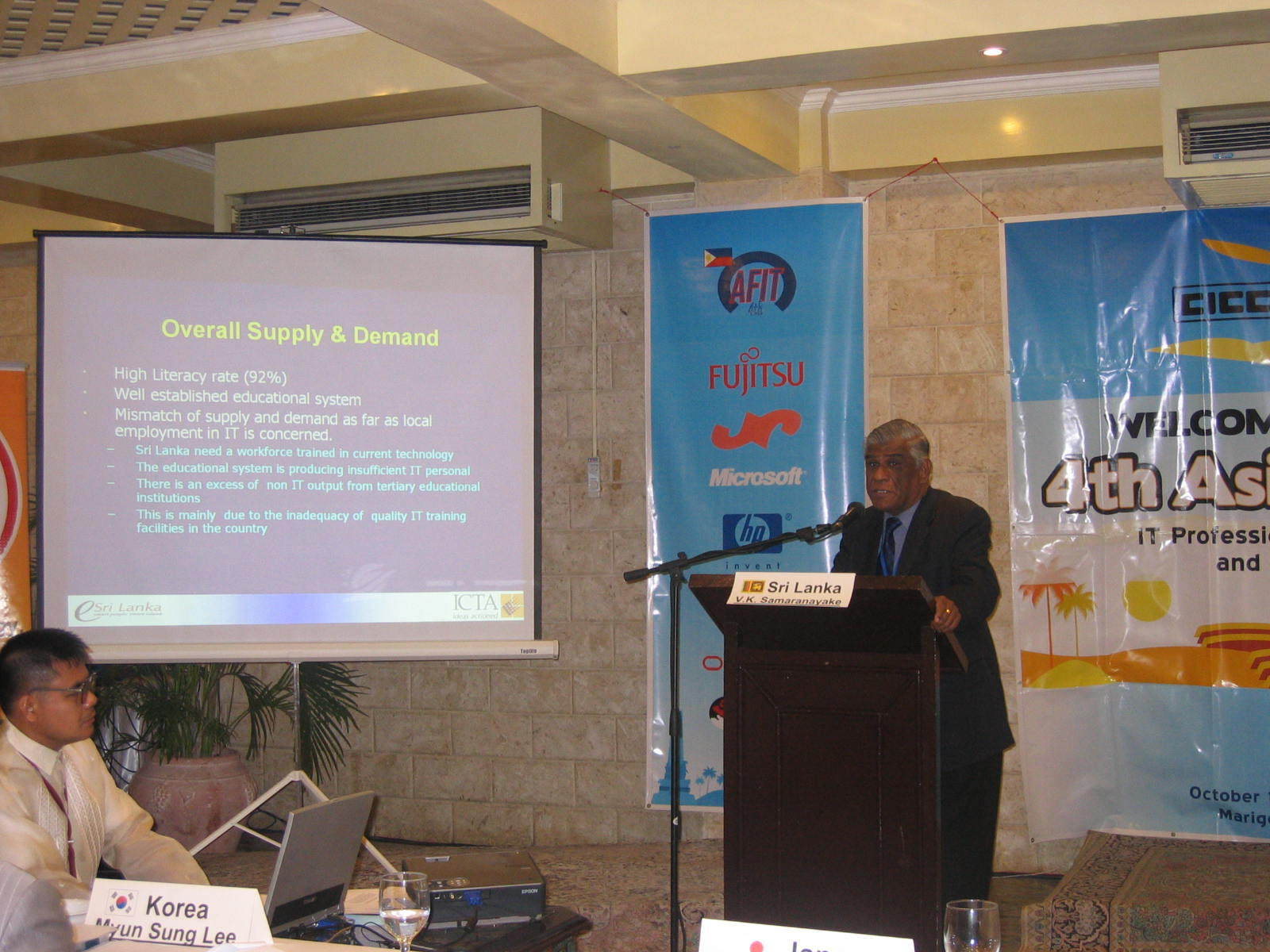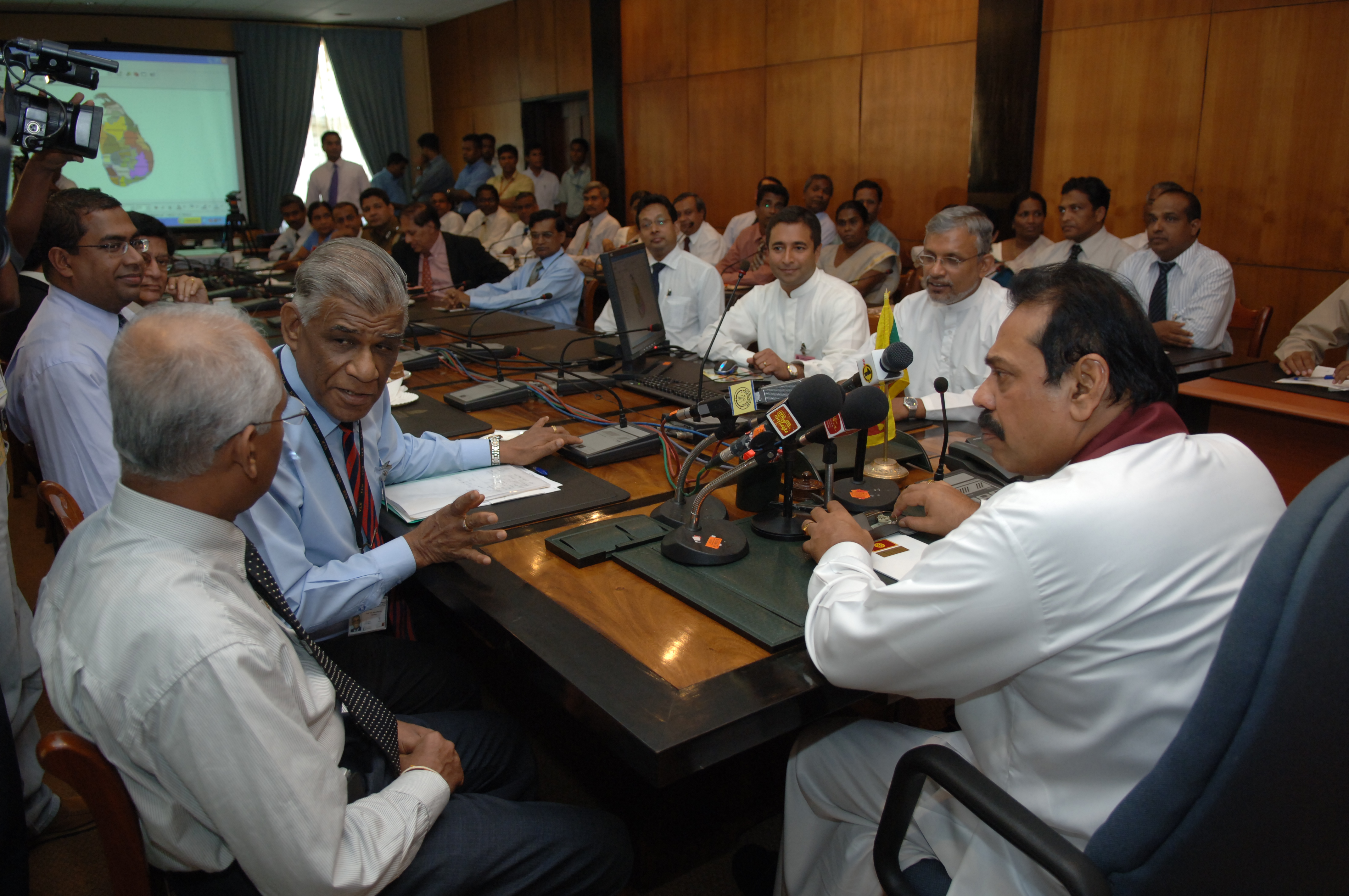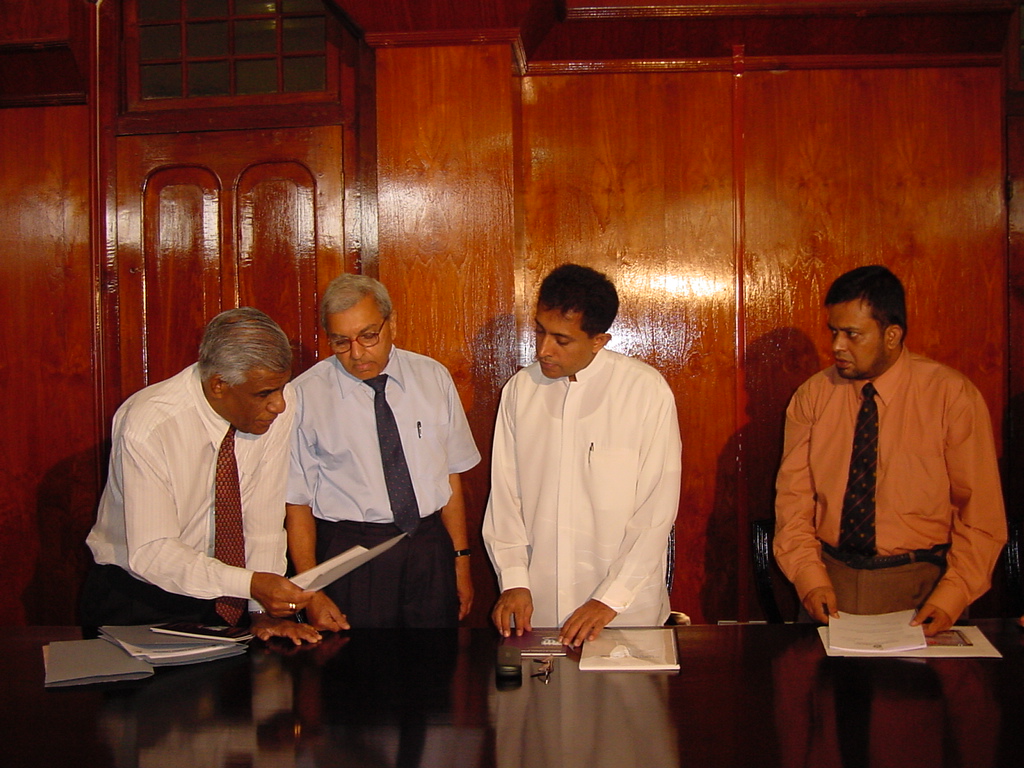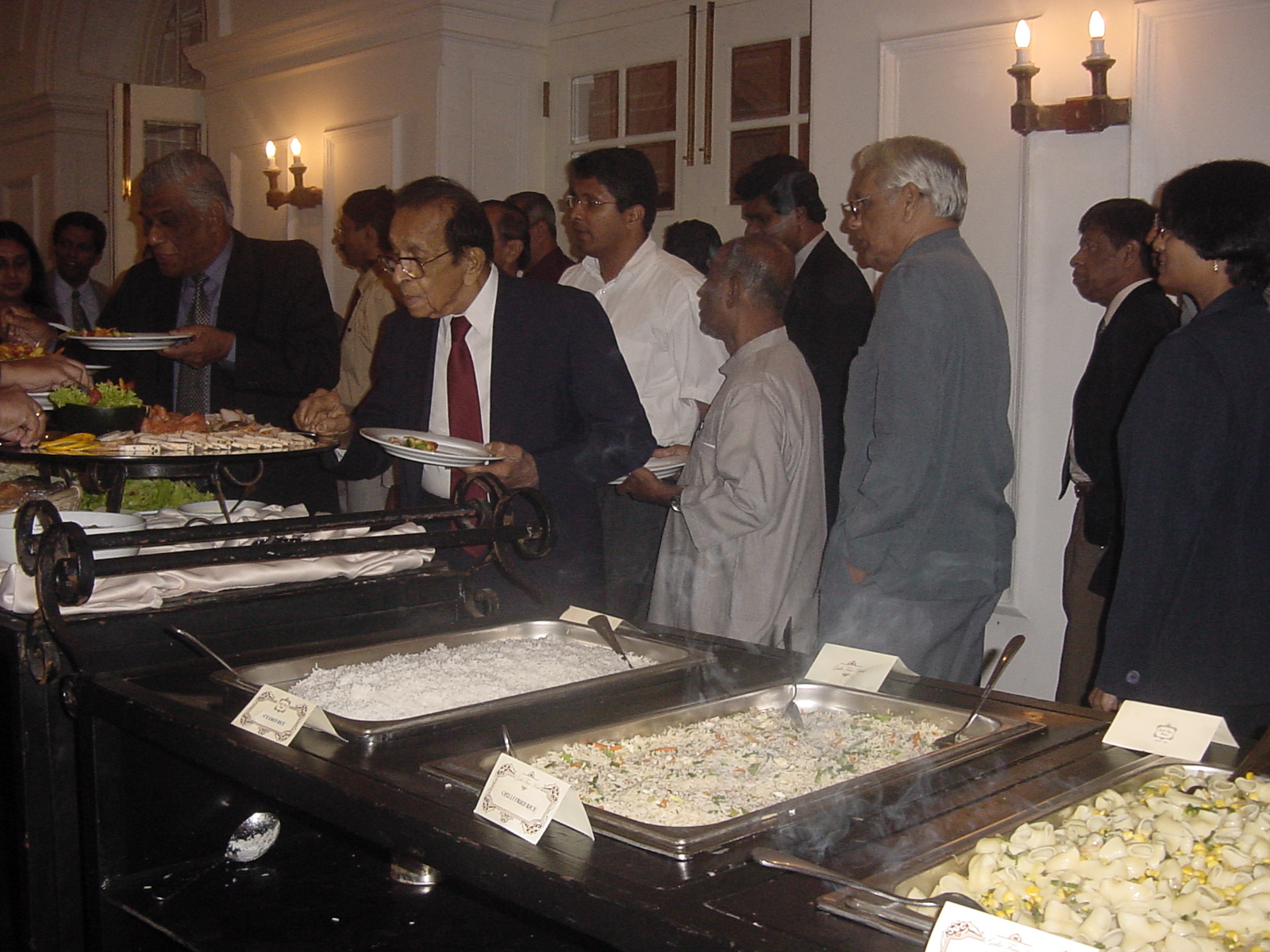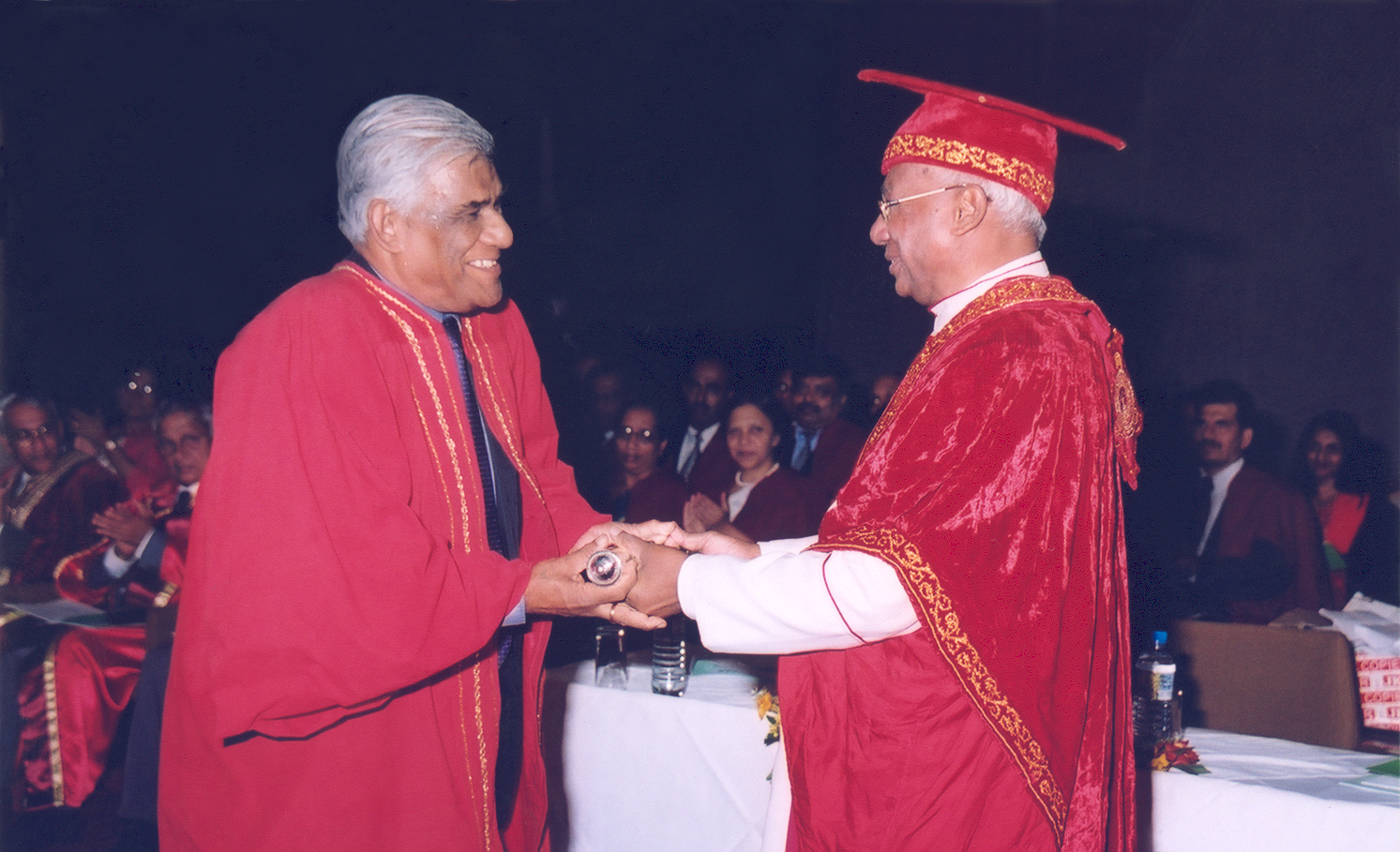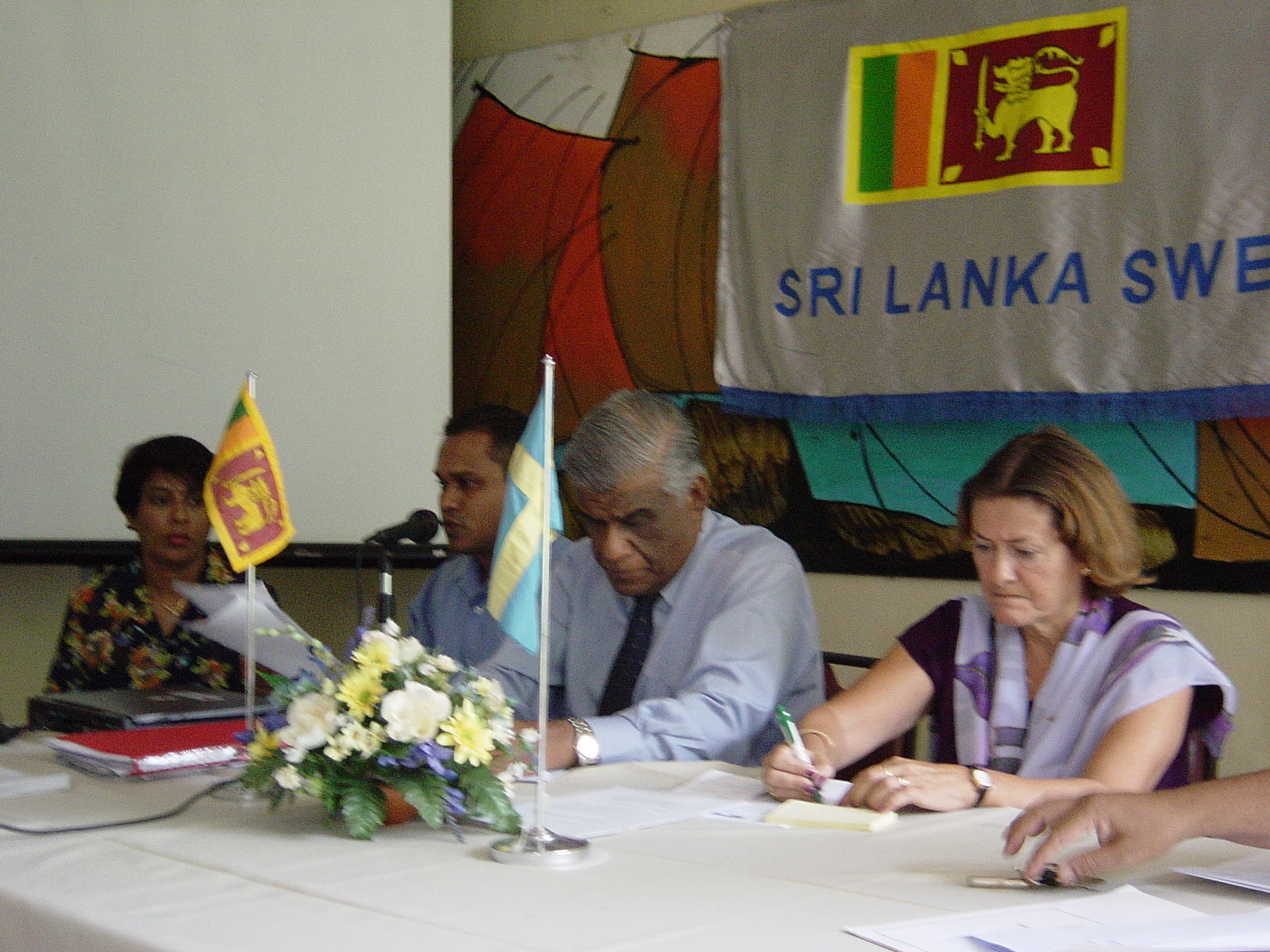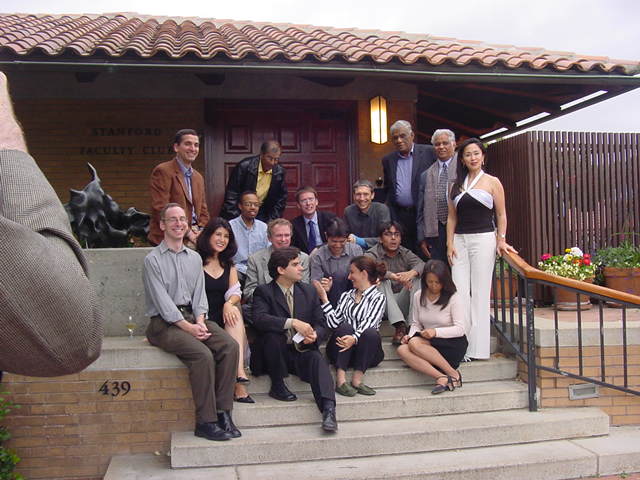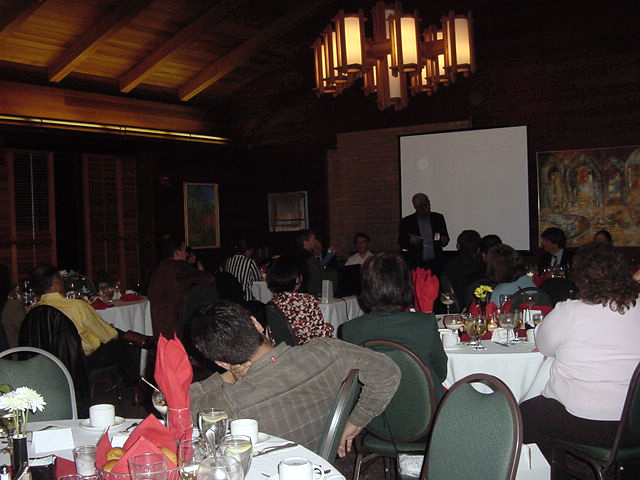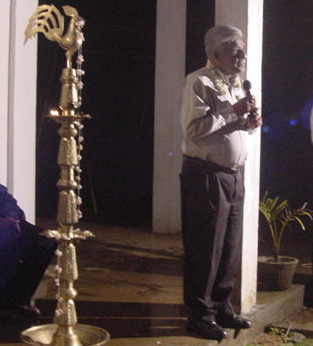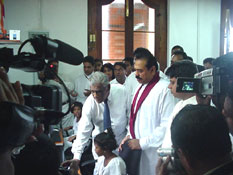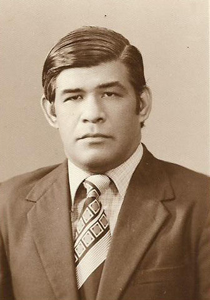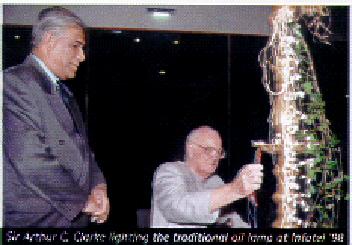Prof. Samaranayake retired from the University of Colombo in 2004 after one of the longest and most distinguished careers spanning a total of 43 years of service, and has already been honored as Professor Emeritus of Computer Science, by the Senate and the Council of the University of Colombo.
Vanniarachchige Kithsiri Samaranayake was born to Mr. And Mrs. V.W. Samaranayake on the 22nd of May 1939 in Colombo. His father was the Principal of the Hewavitharana Vidyalaya, Rajagiriya, and his mother was a teacher at this school. Kithsiri Samaranayake had his early education in that same school and then joined Ananda College in 1948. He sat for a competitive examination through which he was admitted to Royal College in 1950. One of the pillars of his success has been that, through this entire period, Kithsiri Samaranayake lived and breathed in the environment of a Principal’s quarters where he was often co-opted into the educational processes and activities of the school.
Prof. V.K. Samaranayake entered the University of Ceylon to read for a degree in Science in 1956 and was selected to do a Special degree in Mathematics. His academic excellence was recognized and he was offered an Assistant Lecturer post immediately upon completing his degree with First Class Honors in 1961. Thus began a long and illustrious university career which spilled over to a service to the nation.
Prof VKS Memorial Video – By Mr. ST Nandasara
Prof. Samaranayake secured a state scholarship for Postgraduate studies at Imperial College, London in 1963 and then moved on to University College, London to complete his PhD before returning home in 1966. At the age of just 35, in recognition of his great scholarship, the University of Colombo appointed him to its highest Academic position of Professor of Mathematics in 1974. He was subsequently appointed Senior Professor of Mathematics in 1984, invited to be the first Senior Professor of the newly created Chair in Computer Science in 1996 and appointed Emeritus Professor of the University of Colombo in 2004.
Prof. VK Samaranayake was a member of the Committee on National Computer Policy (COMPOL) guidelines which was set up by the Natural Resources, Energy and Science Authority (NARESA), at the request of the then President of Sri Lanka, J.R. Jayawardena. It was chaired by Prof. Mohan Munasinghe, while the other eminent members were, Dr. RB Ekanayake, Dr. NWN Jayasiri, Prof. S Karunaratne and Dr. Ajit Kanagasundram. The resultant policy document was approved by the Cabinet in 1983. This initiative resulted in the establishment of the Computer and Information Technology Council of Sri Lanka (CINTEC) the first government apex body on Information Technology.
In 1986, the Government of Sri Lanka, in recognition of his immense experience in the field of IT, appointed Prof. Samaranayake as the Chairman of CINTEC. During his 12 year tenure at the helm of Sri Lanka’s topmost IT Policy making body, he was instrumental in setting in place many of the ingredients which have now given rise to the well known Sri Lanka ICT Roadmap and the e-Sri Lanka Development Program implemented by CINTEC’s successor, the ICT Agency of Sri Lanka (ICTA). During this period he was also tasked with chairing the Presidential Task Force on Integrated R & D in Science & Technology 1997-2000 and the National Y2K Task Force in Sri Lanka 1998-2000.
As the Chairman of CINTEC he initiated work on the areas of Education, Public Sector Computerization, Local Language Computing, and Communication and also on Law and Computers. The CINTEC Committee on Law and Computers, chaired by Prof. Samaranayake, was established in 1986 to look into the formulation and incorporation into the country’s legal system suitable measures relating to computers and IT, so as to promote is wide use and development. This Committee initiated several initiatives on law reform. One such initiative was review and reform of the law of Evidence in Sri Lanka which resulted in the Evidence (Special Provisions) Act No. 14 of 1995. Work on proposals for legislation on computer crime and on e-Transactions also commenced at the CINTEC and was continued later by ICTA.
Prof. Samaranayake also forged international partnerships. CINTEC was the Focal Point of the UNESCO/Intergovernmental Informatics Program in Sri Lanka. Prof. VK Samaranayake also commenced work on Electronic Data Interchange. He was instrumental in setting up the National EDI/EC (Electronic Data Interchange/Electronic Commerce) Committee which was the Focal Point is Sri Lanka in respect of the Asia Pacific Council for Trade Facilitation and Electronic Business, (AFACT), the body which promoted EDI, EC and Electronic Business in the Asia Pacific region.
Prof. Samaranayake also commenced several awareness programs. In 1995, CINTEC made arrangements for several newspapers to publish a page on IT in their daily/weekly papers, with the objective of the page being a forum for IT related issues, announcements, and IT related advertisements. CINTEC also initiated a radio program where information on the Internet and other IT related aspects was broadcast weekly. This program targeted all sectors of the community, especially those in remote areas of the country. The main objective of the program is to use the Internet to increase IT literacy. He also initiated the IT outreach effort epitomized by the CINTEC ‘Mobile Computer Unit’, and advising the Education Ministry and the NIE on how to reach the entire country’s IT education needs most effectively through Computer Resource Centers.
Even during this tumultuous era in the national spotlight, Prof. Samaranayake continued to contribute actively to the education system in general, the university system in particular and the University of Colombo most prominently. In 1992, with what most would explain as ‘blind faith’, he invested in Sri Lankan school children who he believed could reach the pinnacle in computer programming, by committing CINTEC funds for sending teams of 4 to the International Olympiad in Informatics (IOI). Through his great foresight, Sri Lanka has been able to secure Gold, Silver and Bronze medals at successive IOIs. In 1995 he was instrumental in setting up intensive discussions with Sri Lanka Telecom, to commence Internet services in Sri Lanka. CINTEC assisted in the speedy establishment of Internet connectivity to LEARN and sponsored the full cost of connectivity for one year.
He also commenced addressing standards needed for using ICT in Sinhala including the UNICODE Sinhala code chart and the Sri Lanka standard SLSI 1134. During this time, Prof. Samaranayake also helped immensely in organizing the IT industry at large by forming associations for Computer Training Organizations (ACTOS), for the Software Industry (SLASI), and for the Computer Vendors (SLCVA). With foresight he also created the umbrella organization for these associations in the form of the Federation of IT Industry Associations (FITIS) which recently hosted the largest ICT event in Sri Lanka – the ASOCIO ICT Summit. He has also been involved with the well known ICT Trade Exhibition organization, INFOTEL whose Chairmanship he has held from 1997. INFOTEL has in turn been the major funding organization for many industry and human resource development efforts in the field of ICT. Prof. Samaranayake was Chairman of ICTA from 2005 until he passed away in 2007.
Prof. Samaranayake’s involvement in the scientific community has been no less impressive with the Sri Lanka Association for the Advancement of Science (SLAAS) electing him to the office of General President in 1994 and the National Academy of Sciences of Sri Lanka electing him as a Fellow of the Academy, its Vice President and finally its President for 1998-99.
His quest for capacity building in ICT human resources can most clearly be seen in his single handed contribution in this area at the University of Colombo – making it a showcase among the university system in Sri Lanka and beyond. Investing in human resource development in ICT also involves huge risks – that of aiding in the brain drain. This is where Prof. Samaranayake’s broadness of vision and almost unreasonable trust, especially in the case of training Faculty in the University, is most clearly seen. Commencing with the meager funding resources extended by donors in the 1970s in an era when the developed countries themselves were just getting into the area of serious ICT human resource development, Prof. Samaranayake began his quest of directing all local and foreign funding to ICT Human Resource development at the University of Colombo.
In 1984 he had his first major breakthrough with the full backing of the then Chancellor, Dr. PR Anthonis and Vice Chancellor Prof. Stanley Wijesundera in the form of a substantial JICA grant from the Government of Japan. Almost simultaneously, the UNDP provided some much needed research funding to build up Academic Faculty in Computer Science at the University of Colombo. Starting with the Statistical Unit and the Statistical Computing and Data Processing Centre within the Mathematics Department, Prof. Samaranayake first convinced the University to setup a Department of Statistics and Computer Science in 1985, the first of its kind in Sri Lanka, and then went onto create the first School in the university system in the form of the University of Colombo School of Computing (UCSC) in 2002.
Commencing in the year 2000, Prof. Samaranayake initiated another major milestone in ICT HRD in Sri Lanka with the launch of the innovative Bachelor of Information Technology (BIT) External Degree program which provides an ultimately scalable mechanism for affordable ICT education in a way that incorporates the private sector – a feat no other degree program has been designed to do. Apart from the prestige of a University of Colombo degree to students, the BIT program also has the indirect but most desirable effect of standardizing ICT education in an era where commercialism is threatening the quality of education.
In recognition of his towering contribution in the field of ICT in the country, he has been bestowed with several national awards in the form of the Lions’ Club Gold Medal for the Most Outstanding Citizen of Sri Lanka in 1986, the Vishva Prasadini Award in 1996 on the occasion of the 80th birthday of the then Prime Minister Sirimavo Bandaranaike and the Vidya Jyothi Presidential Award in 1998.
Prof. Samaranayake’s characteristic skill at excelling in multiple tasks simultaneously is also demonstrated by his continuing involvement in research, being named a Fellow of the Kennedy School of Government at Harvard University, USA in 2001, Research Fellow at the National Center for Digital Government at Harvard University, USA in 2003 and the impending appointment as Visiting Fellow in the Digital Vision Programme at Stanford University, USA in 2005.
Over the years, Prof. Samaranayake has also organized several events and conferences at national, regional and international levels. His achievement, the simultaneous chairing of two International Conferences while playing a key role in the entirety of the Government declared Information Technology Week in December 2004, has not only made him a towering personality in that field regionally and internationally, but also brought fame and prestige to the University of Colombo and the Nation.
Prof. Samaranayake leaves behind many legacies, perhaps the greatest of which is his singular ability to create opportunities within the restrictive state system without breaking the rules. His attitude of scorning the pessimistic, being willing to take calculated risks and trusting in the abilities of others – all for the benefit of the university and society at large, are qualities all too rarely seen even in the private sector of Sri Lanka today.
In summary, it would be accurate to state that the University of Colombo and the nation as a whole has benefited, in ways still to be fully comprehended by many, by the life and work of Prof. VK Samaranayake over his years of untiring service.
He was awarded the Degree of Doctor of Science, Honoris Causa at the General Convocation of the University of Colombo held on 6th January, 2005. Prof. VK Samaranayake passed away on 7th June 2007.
෴
Dr. Ruvan Weerasinghe, University of Colombo School of Computing
Edited by Ms. Aruni Goonetilleke

